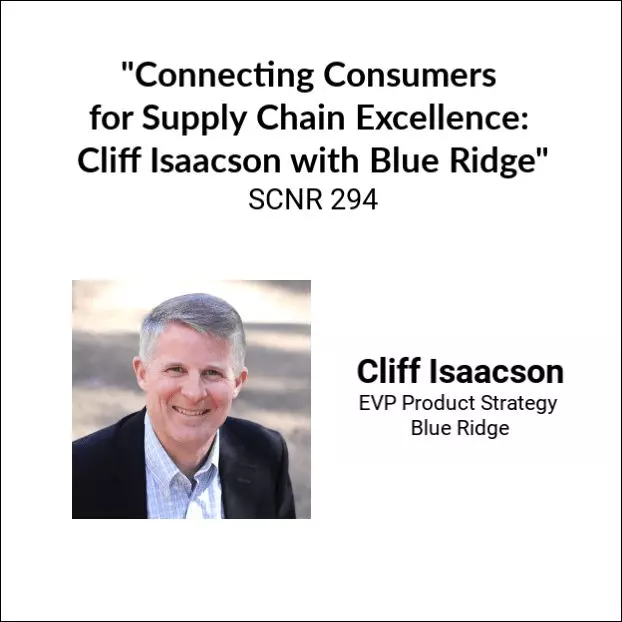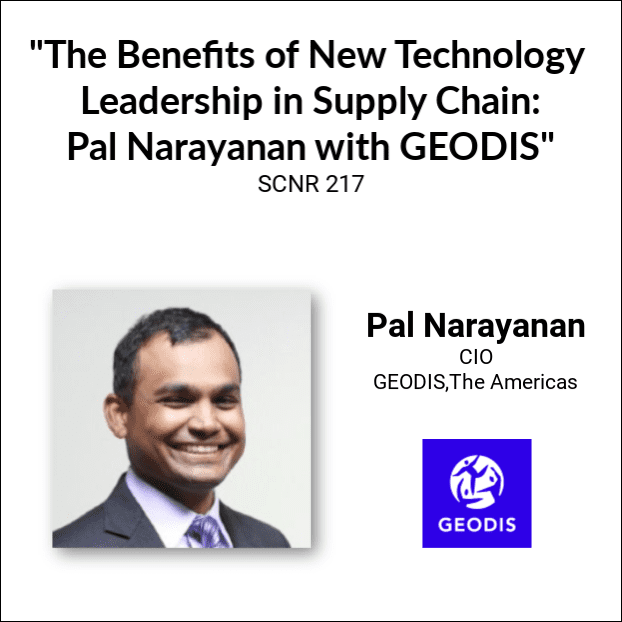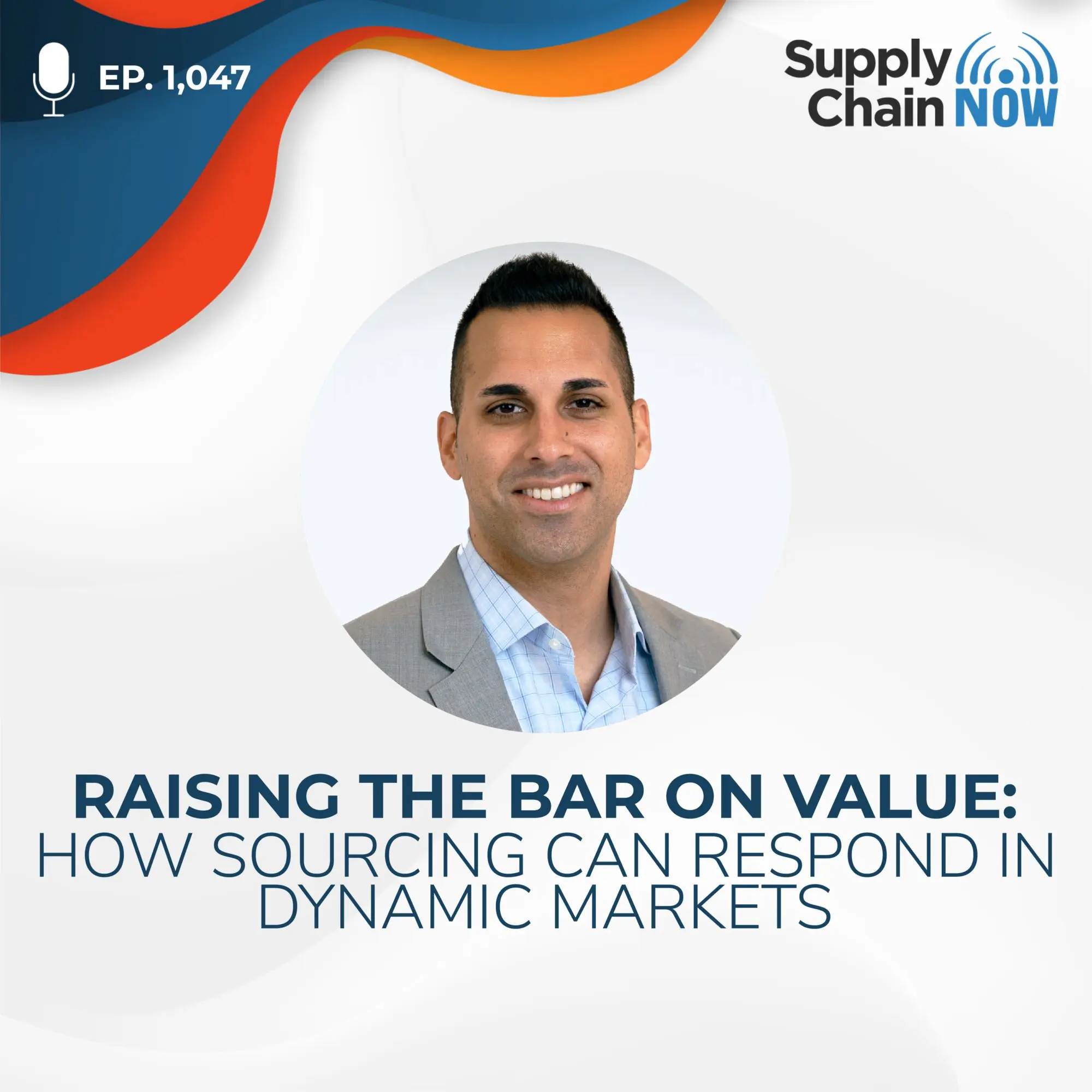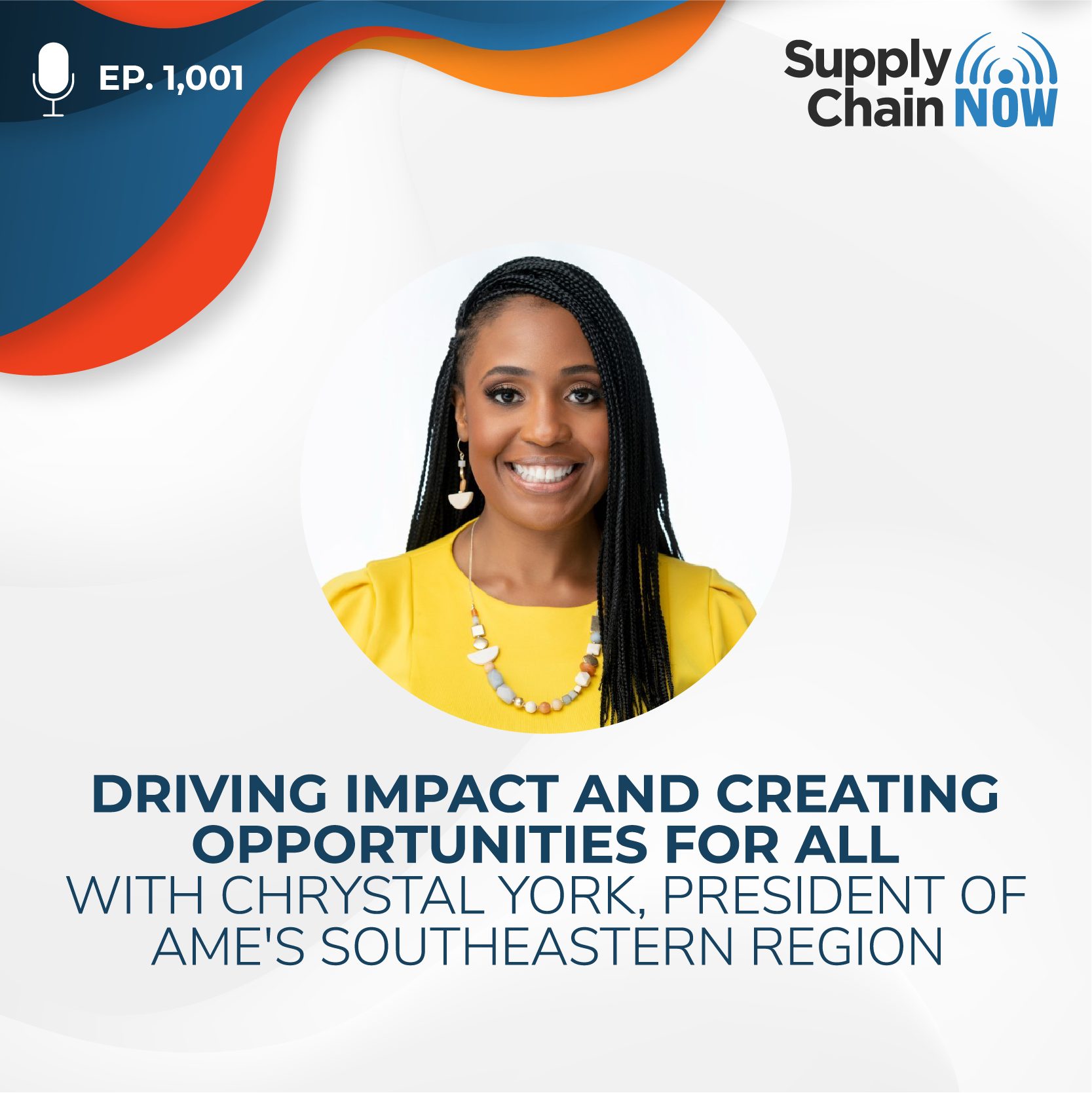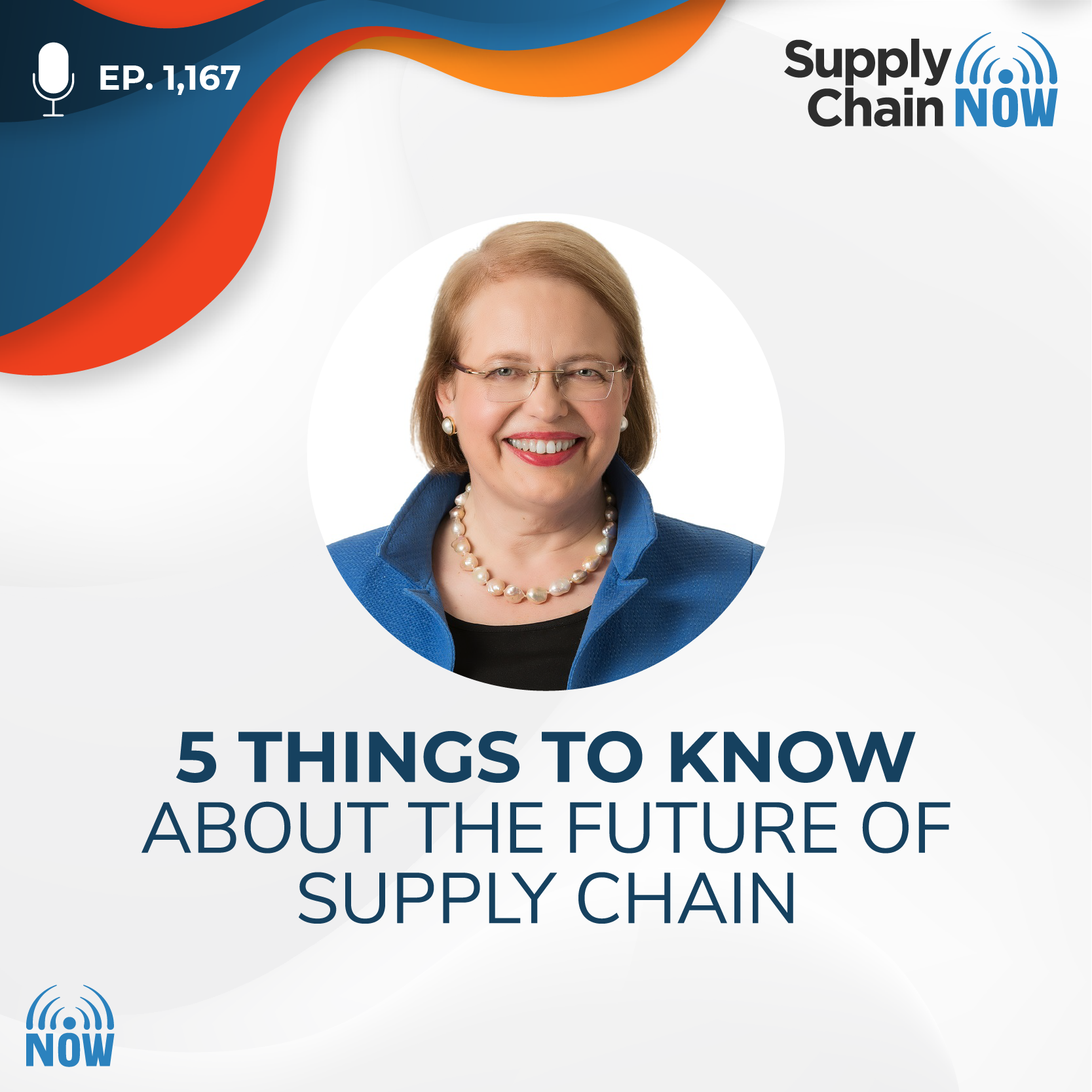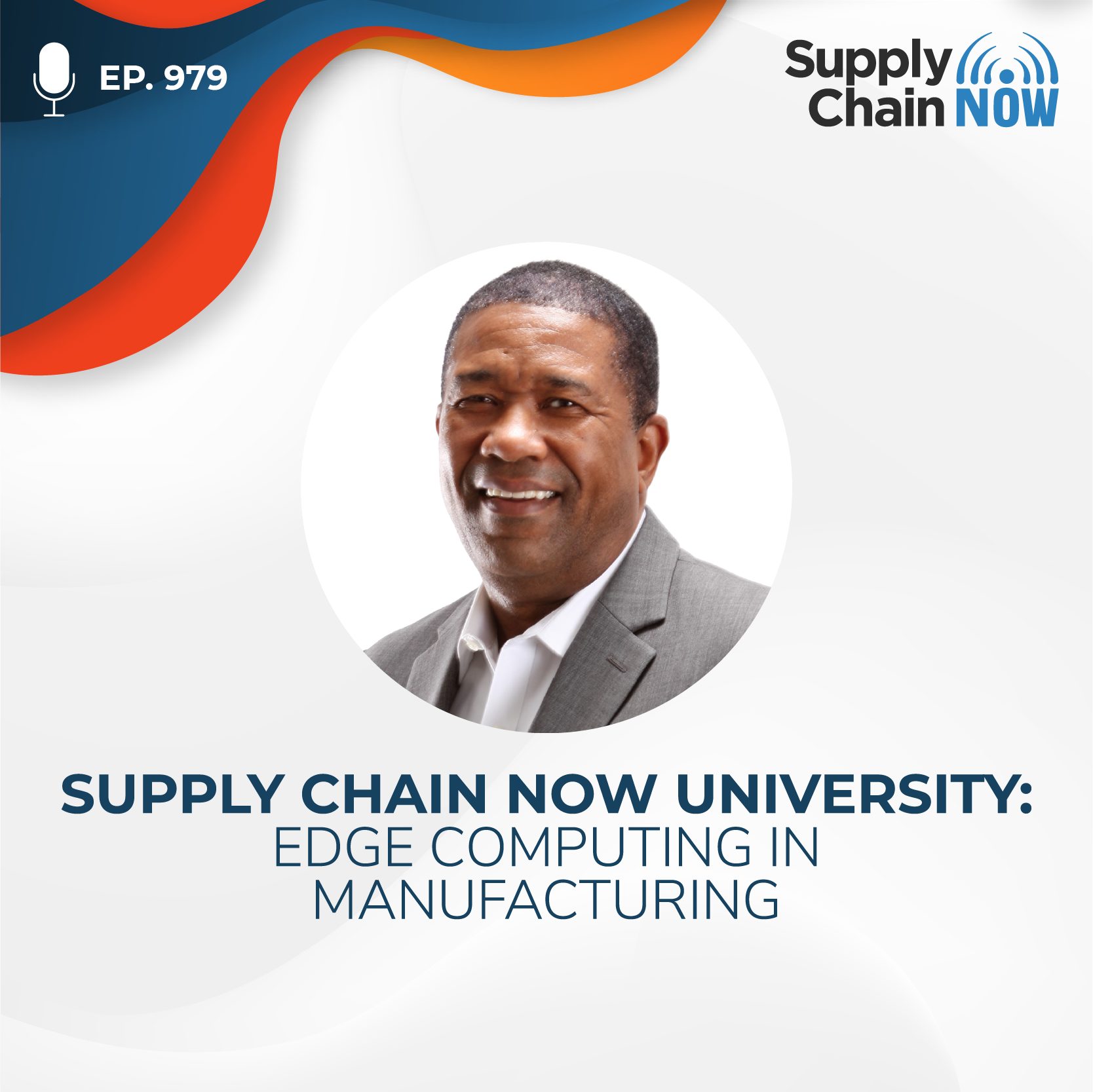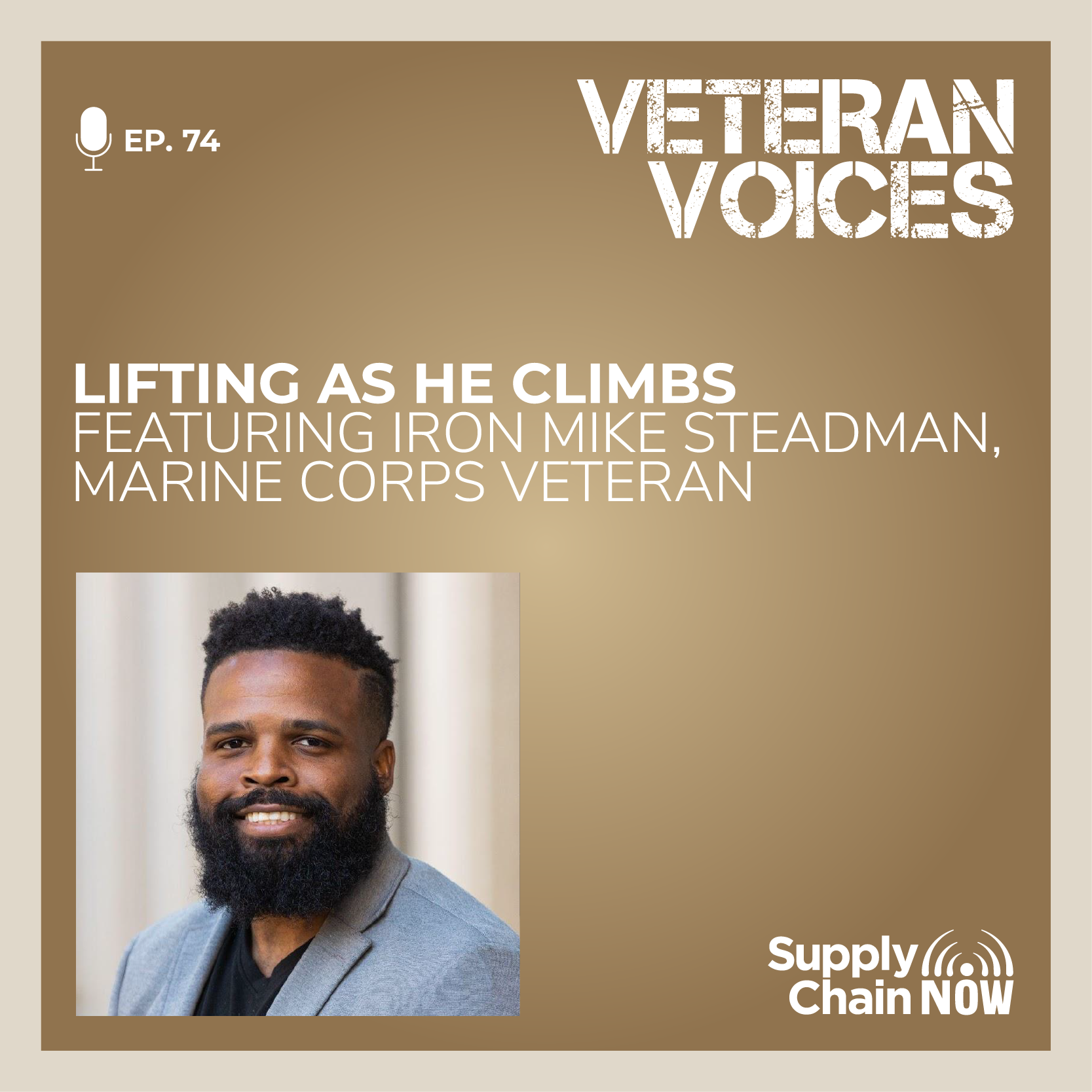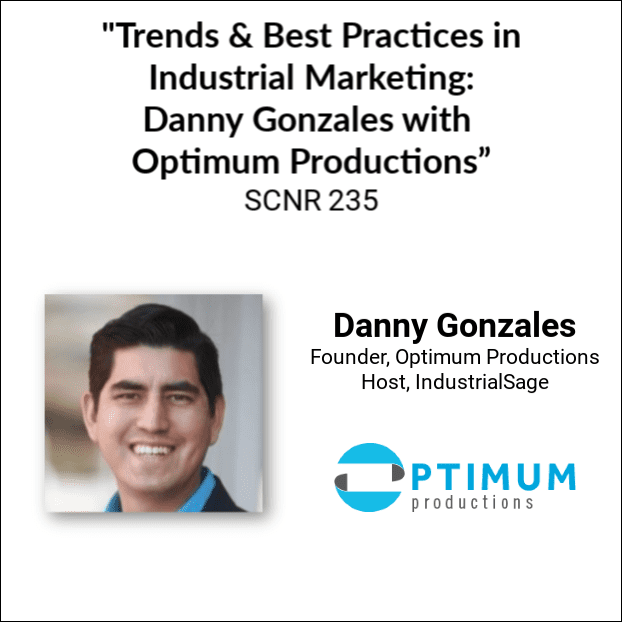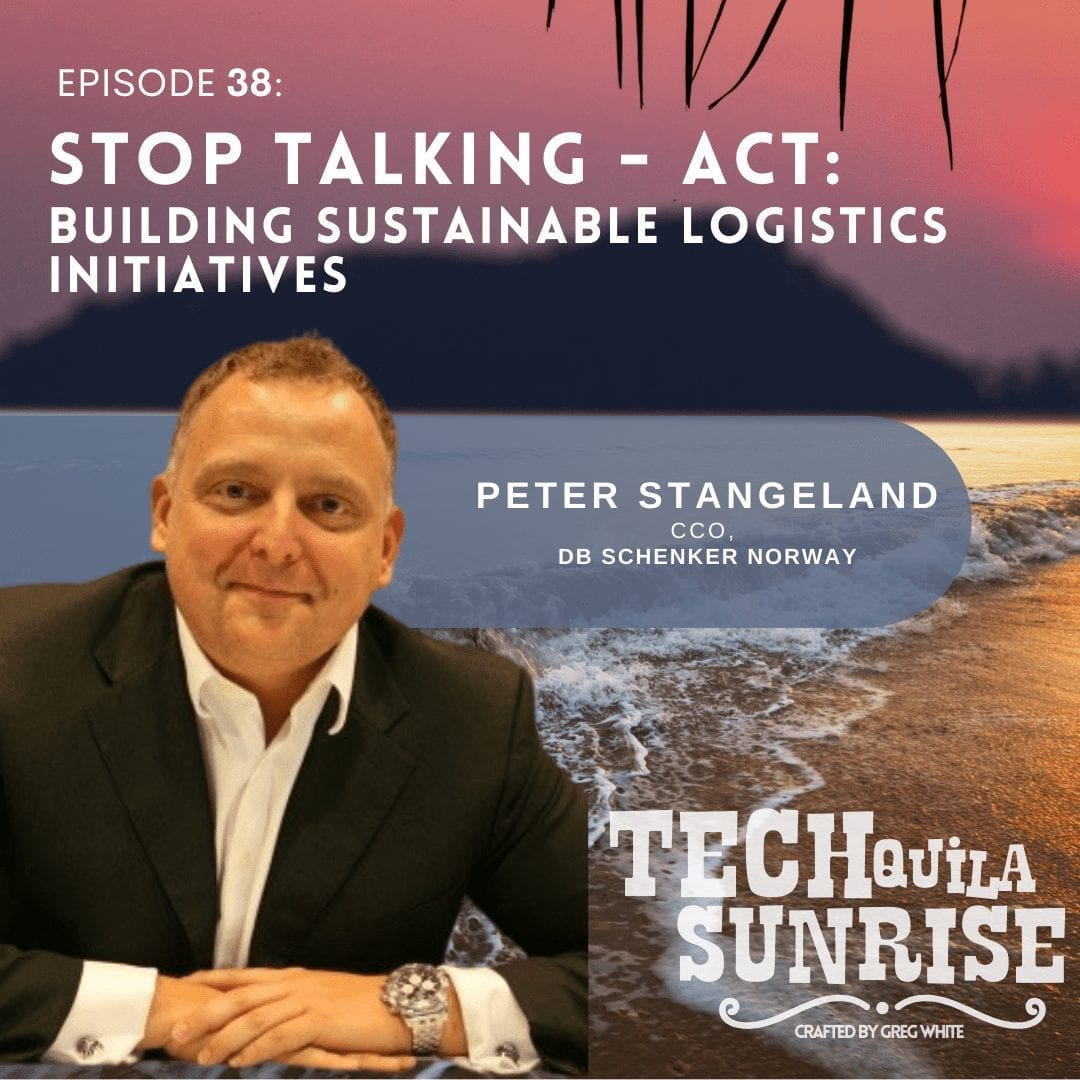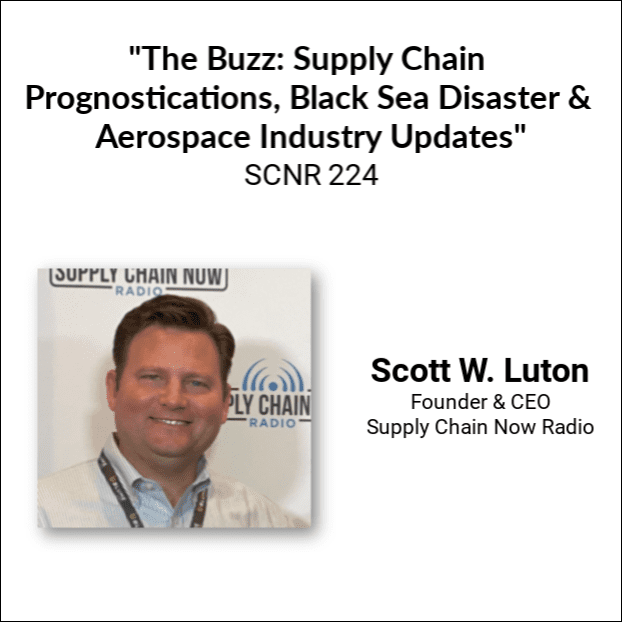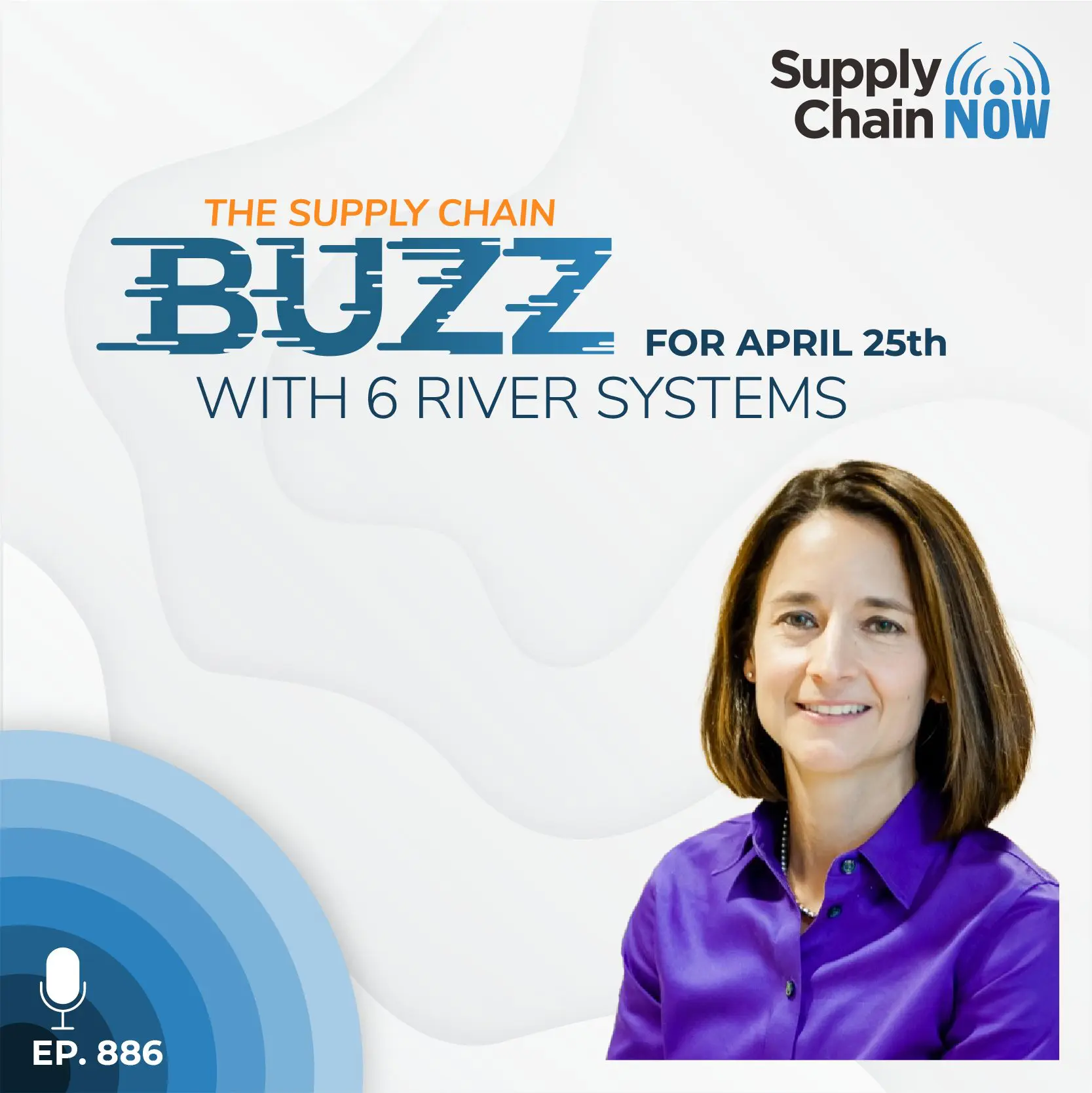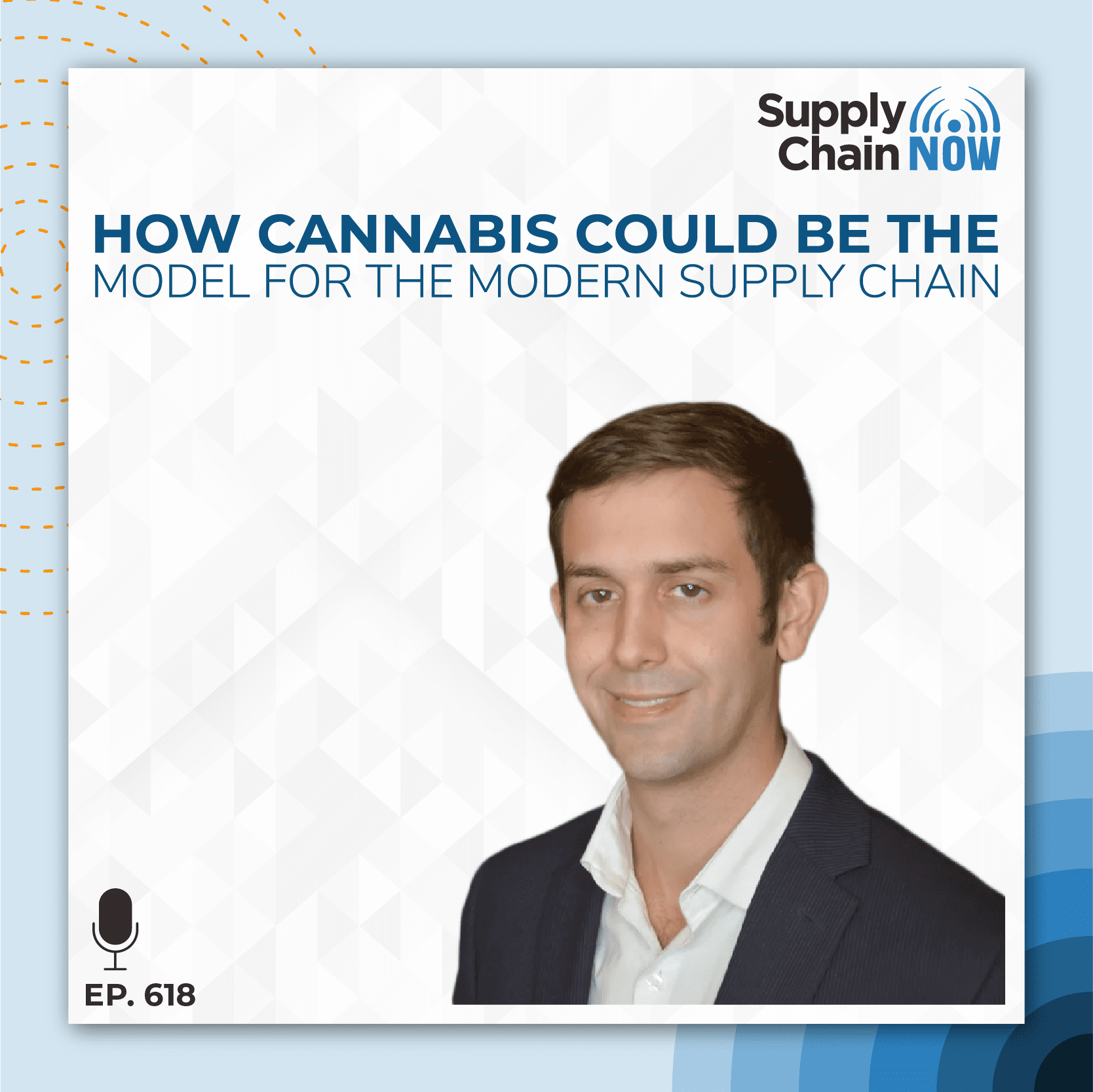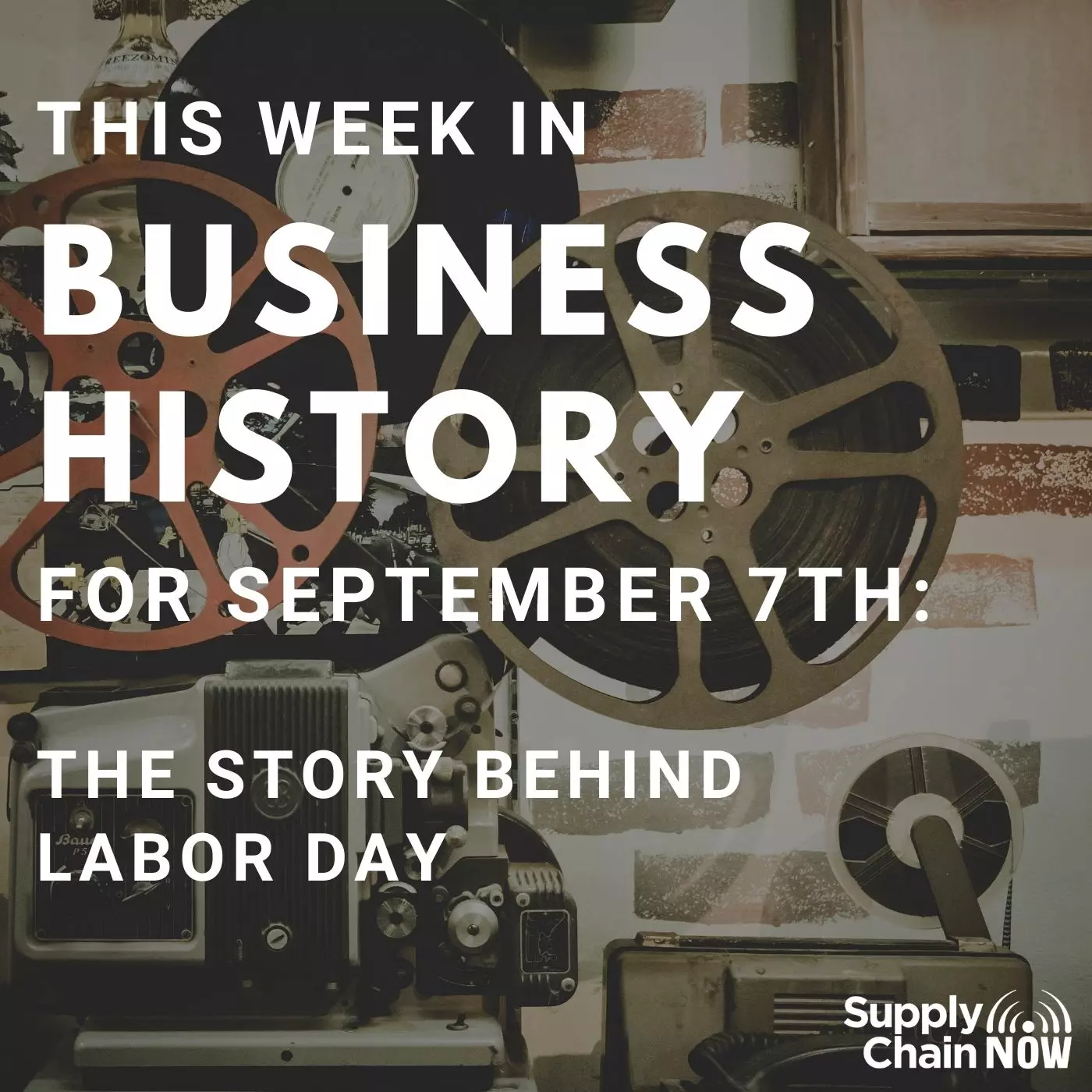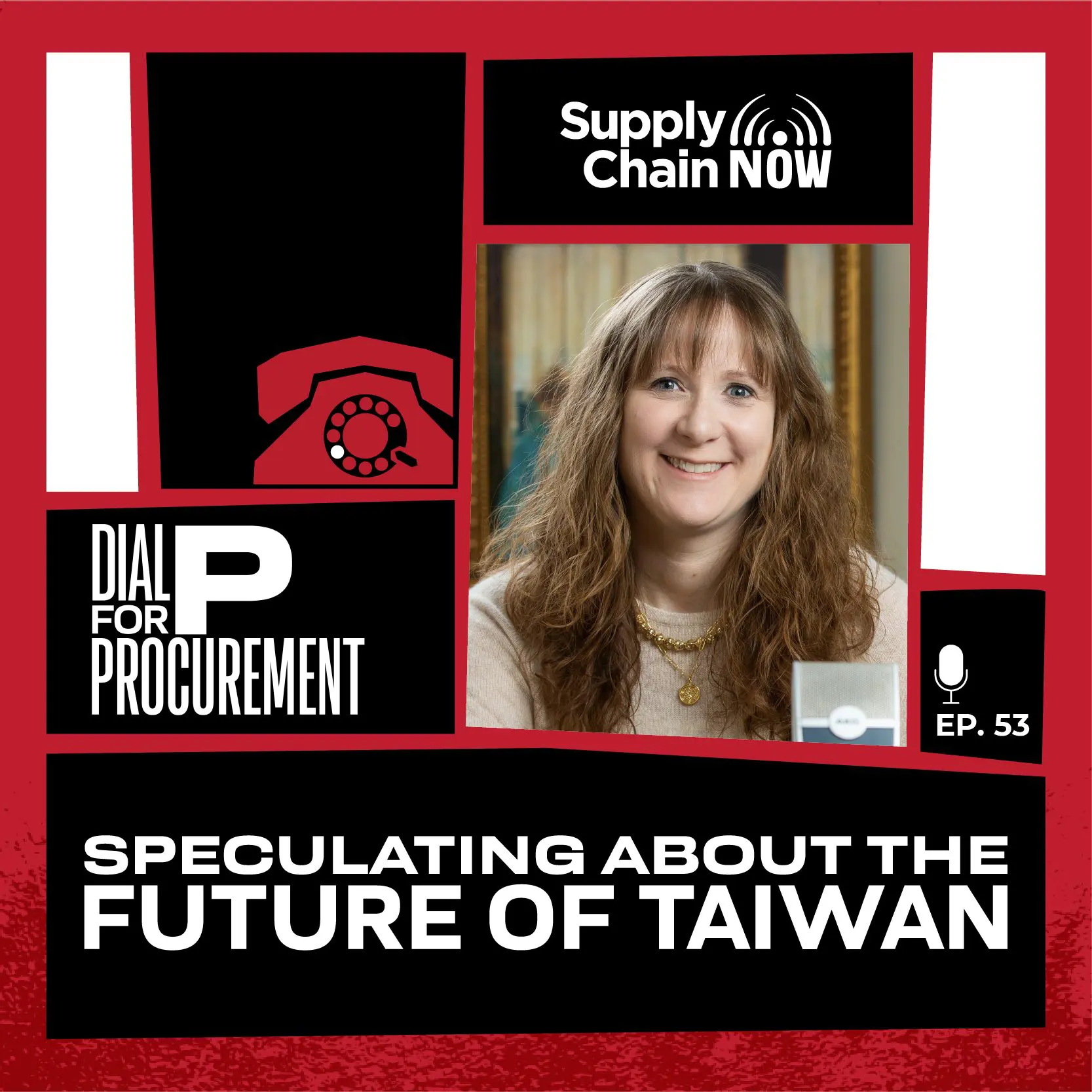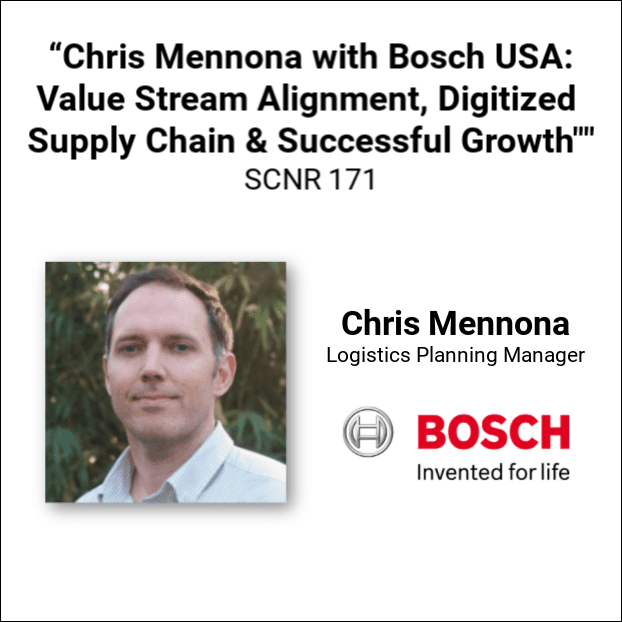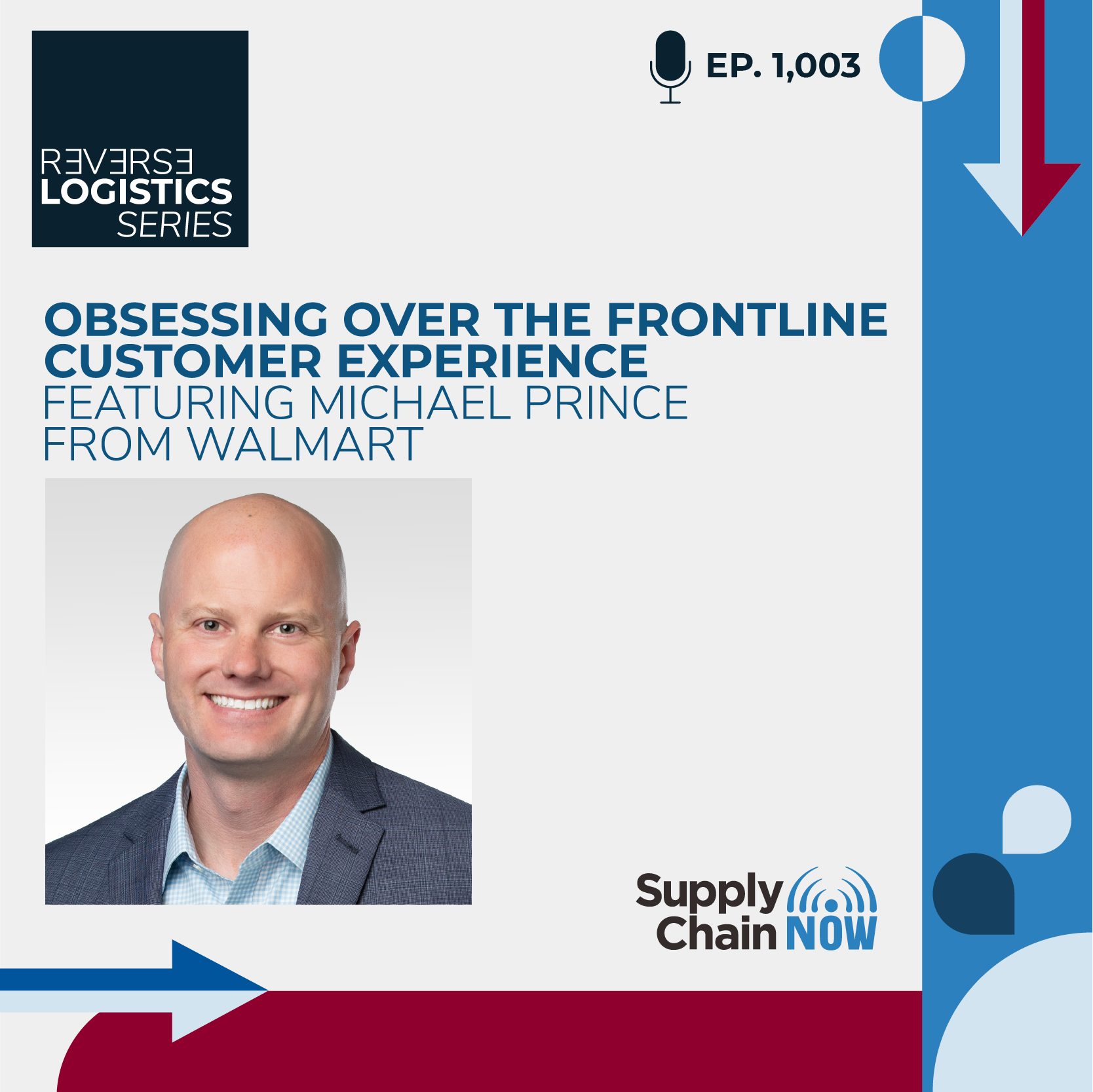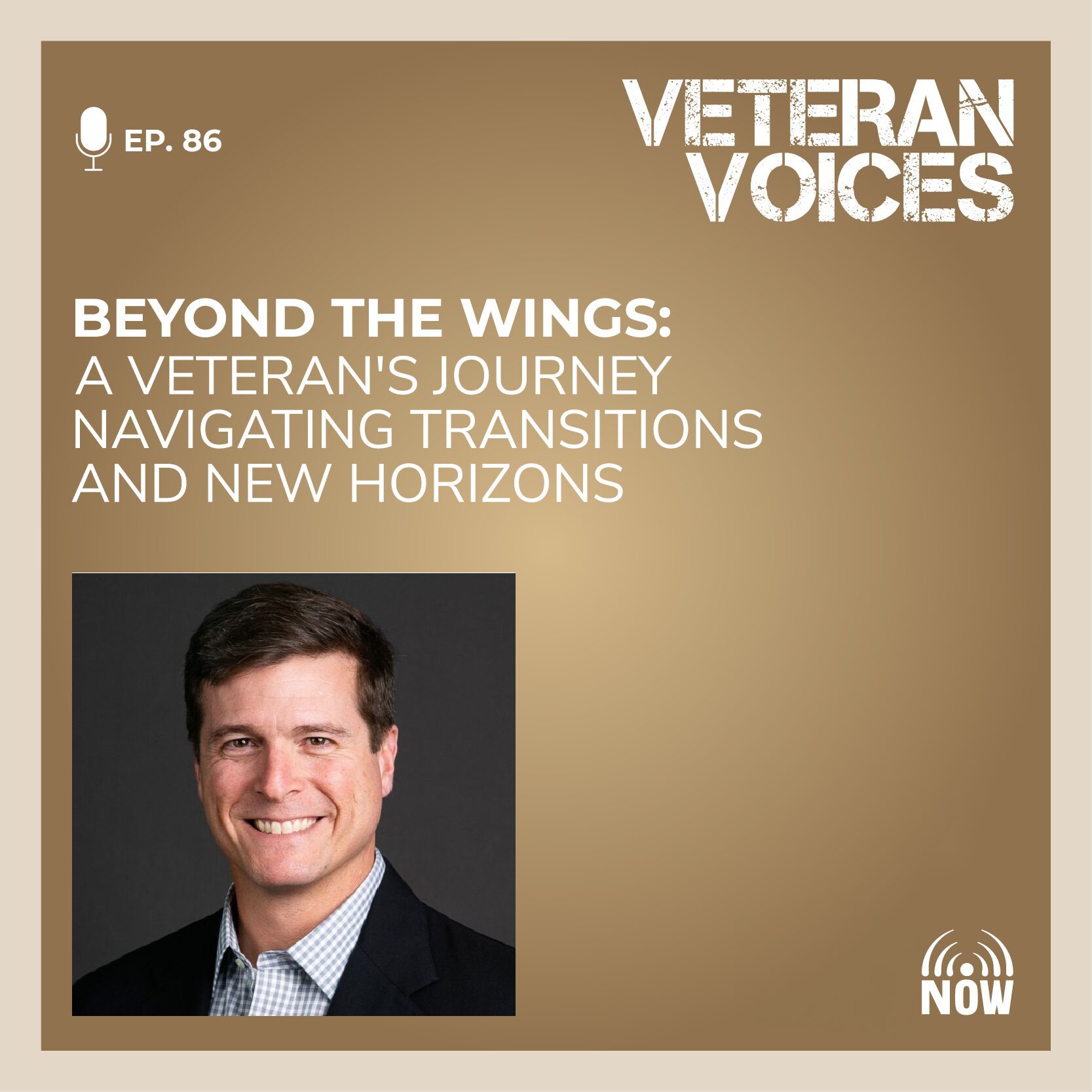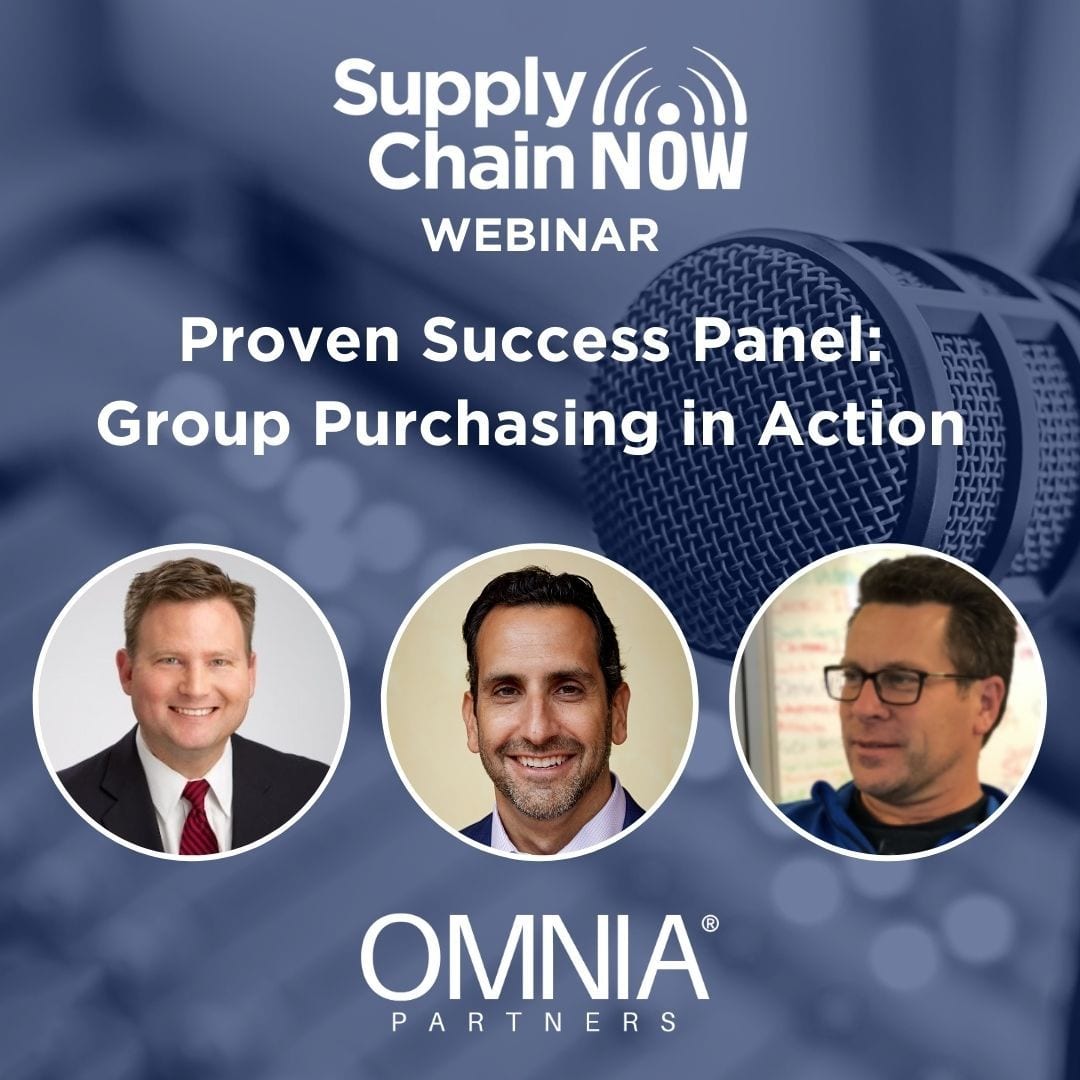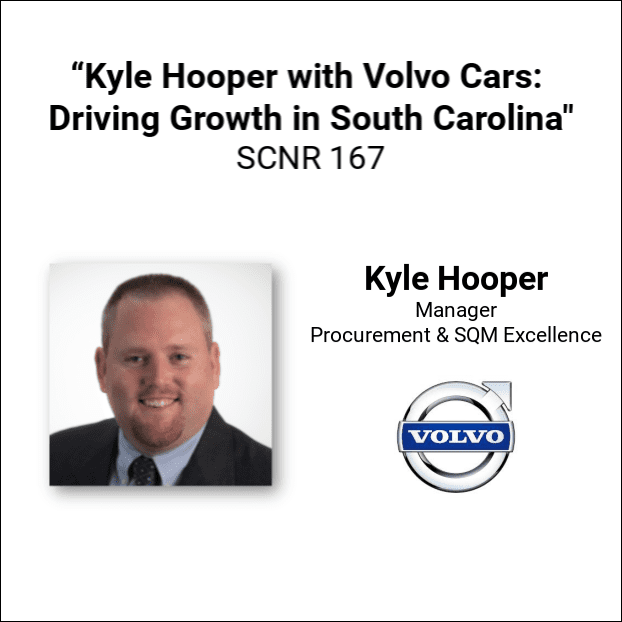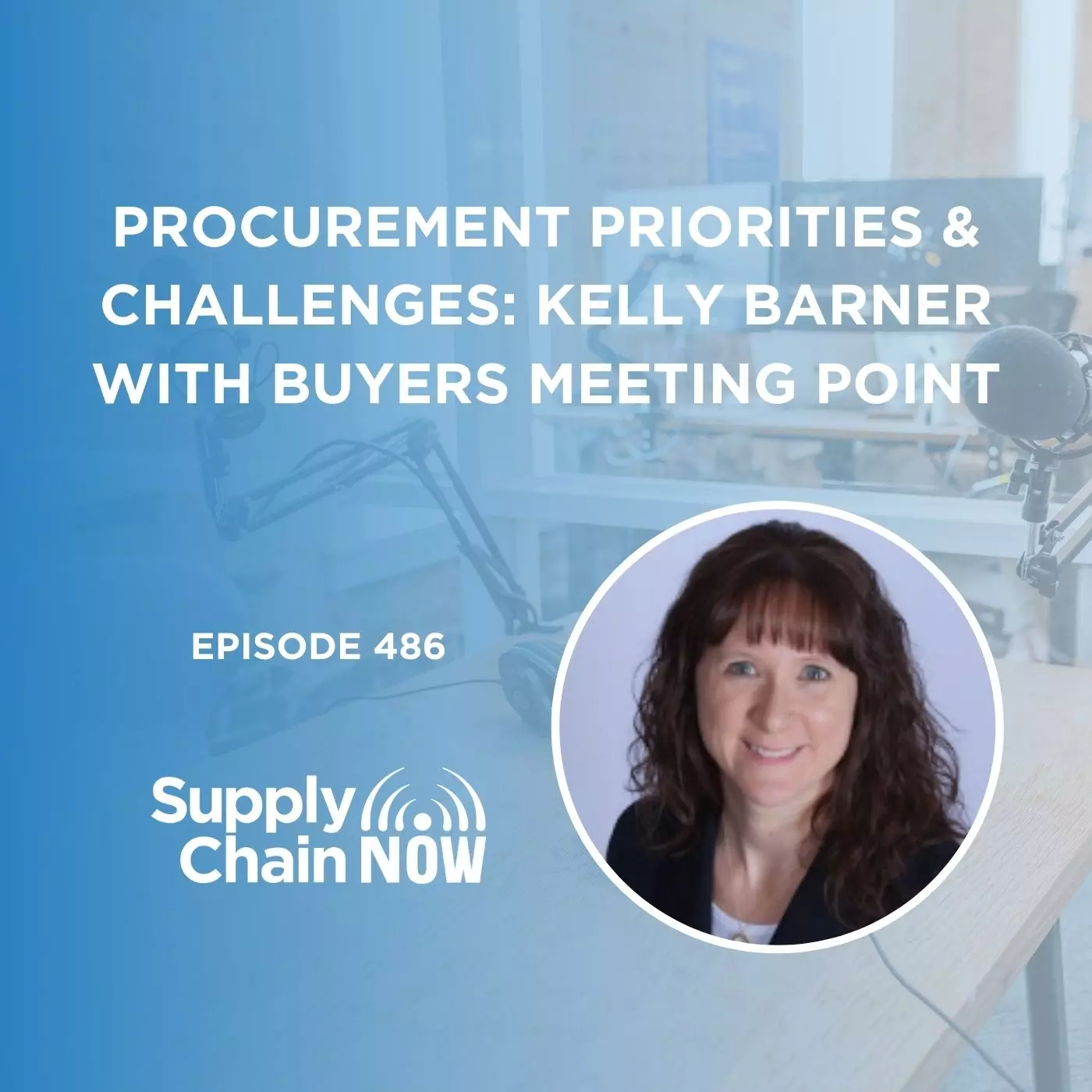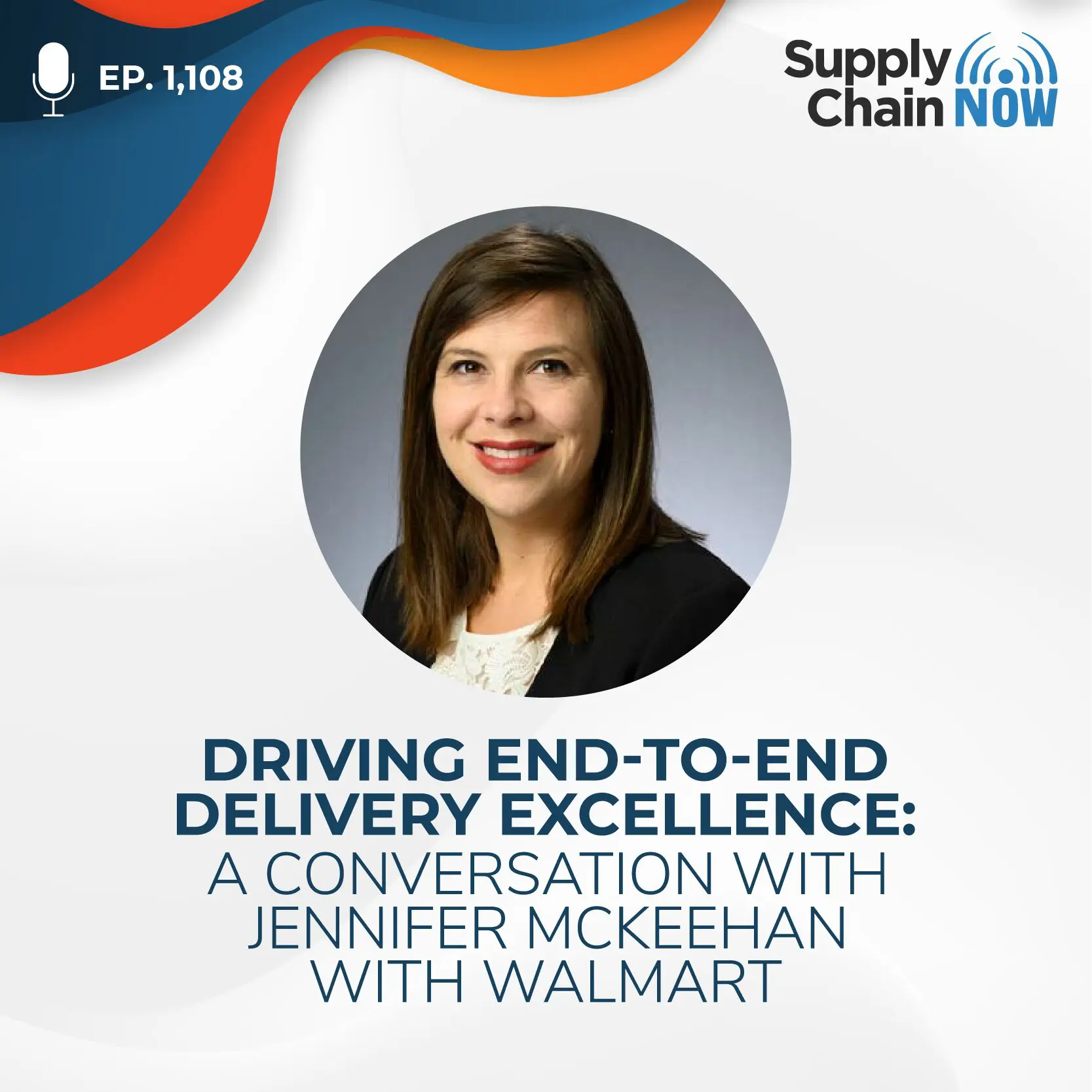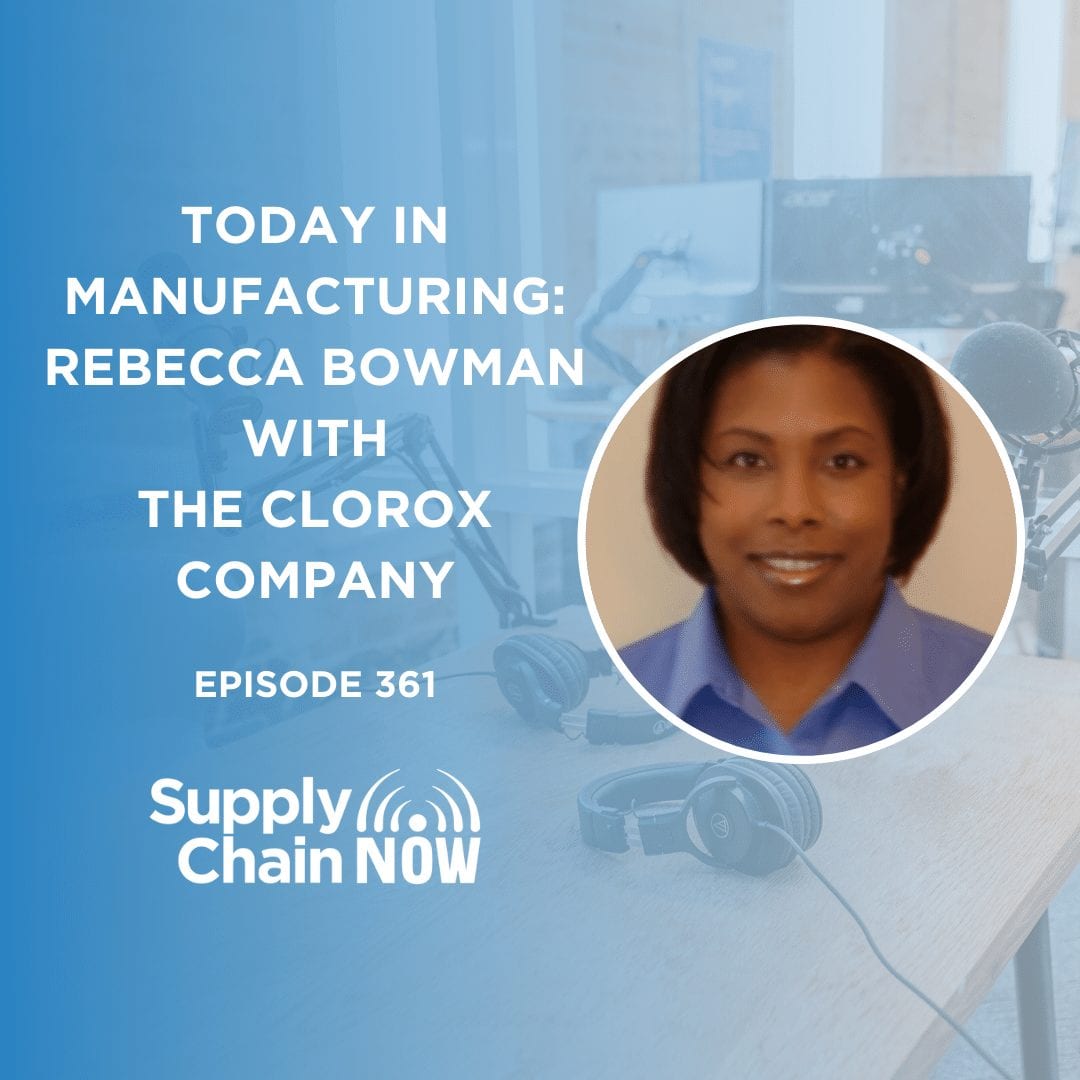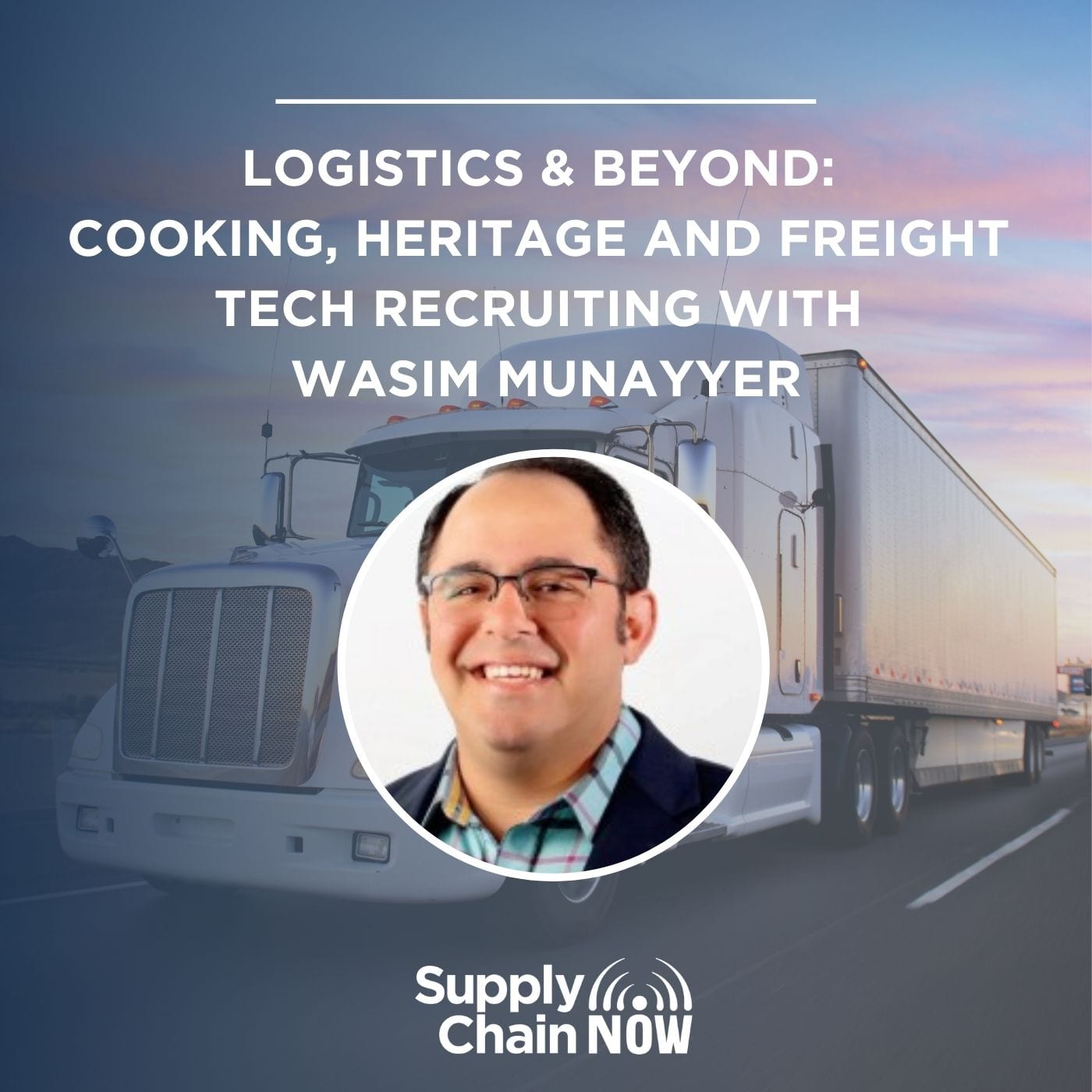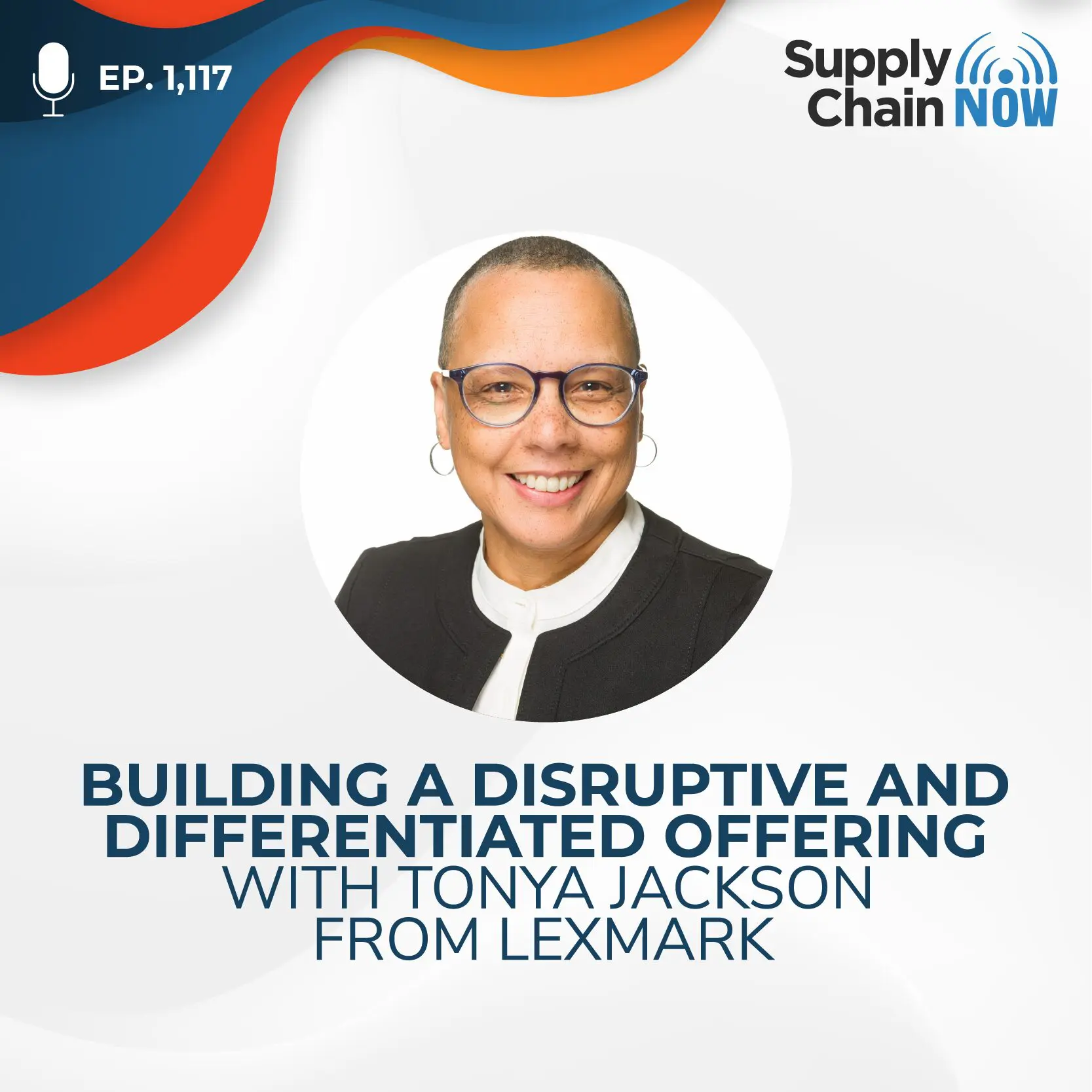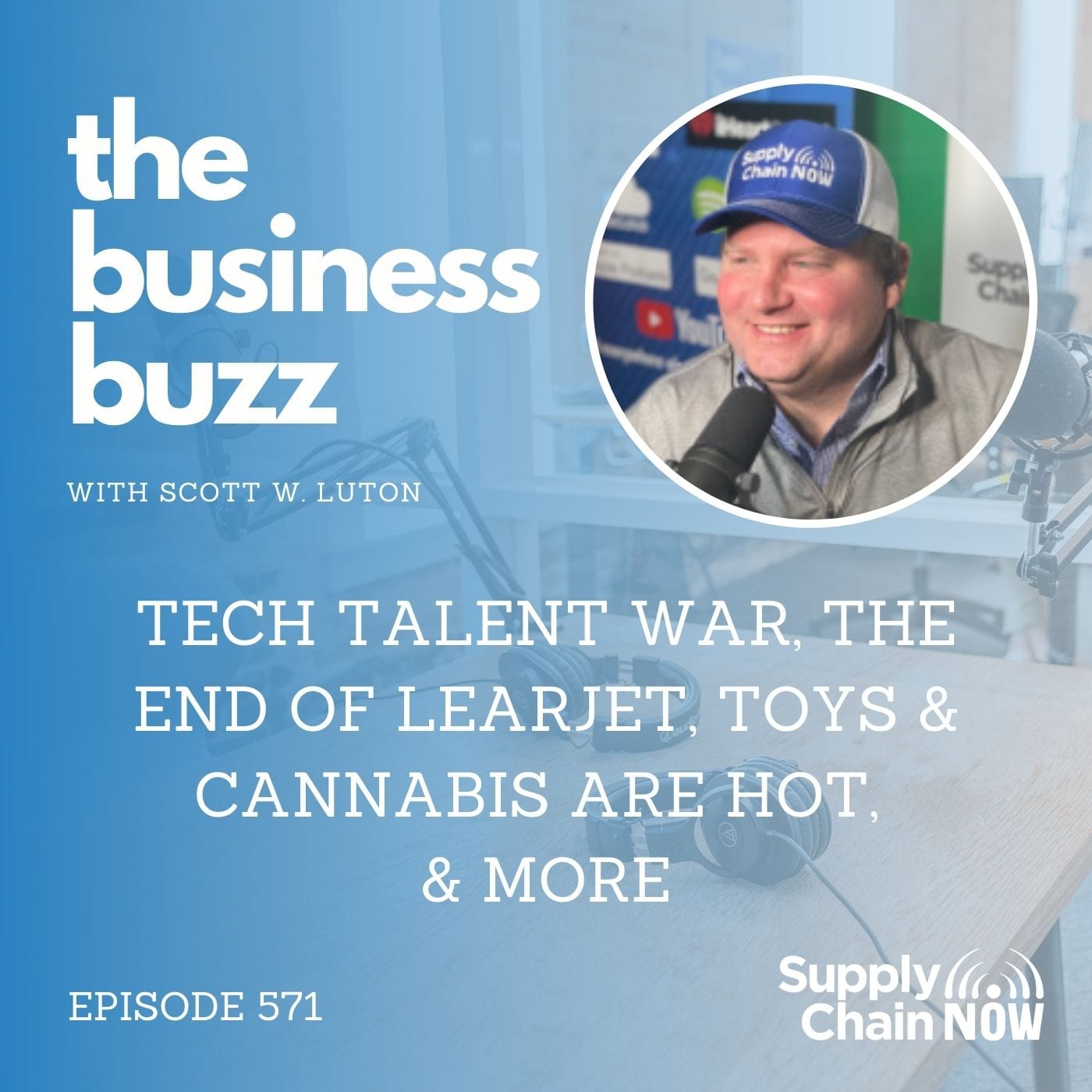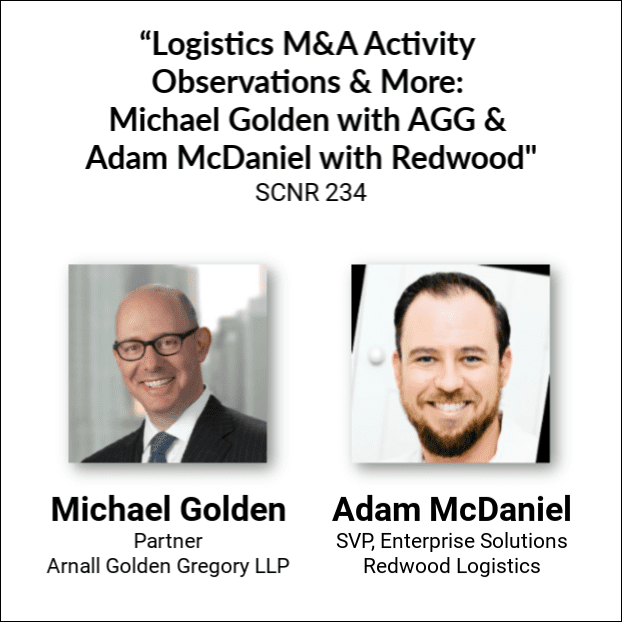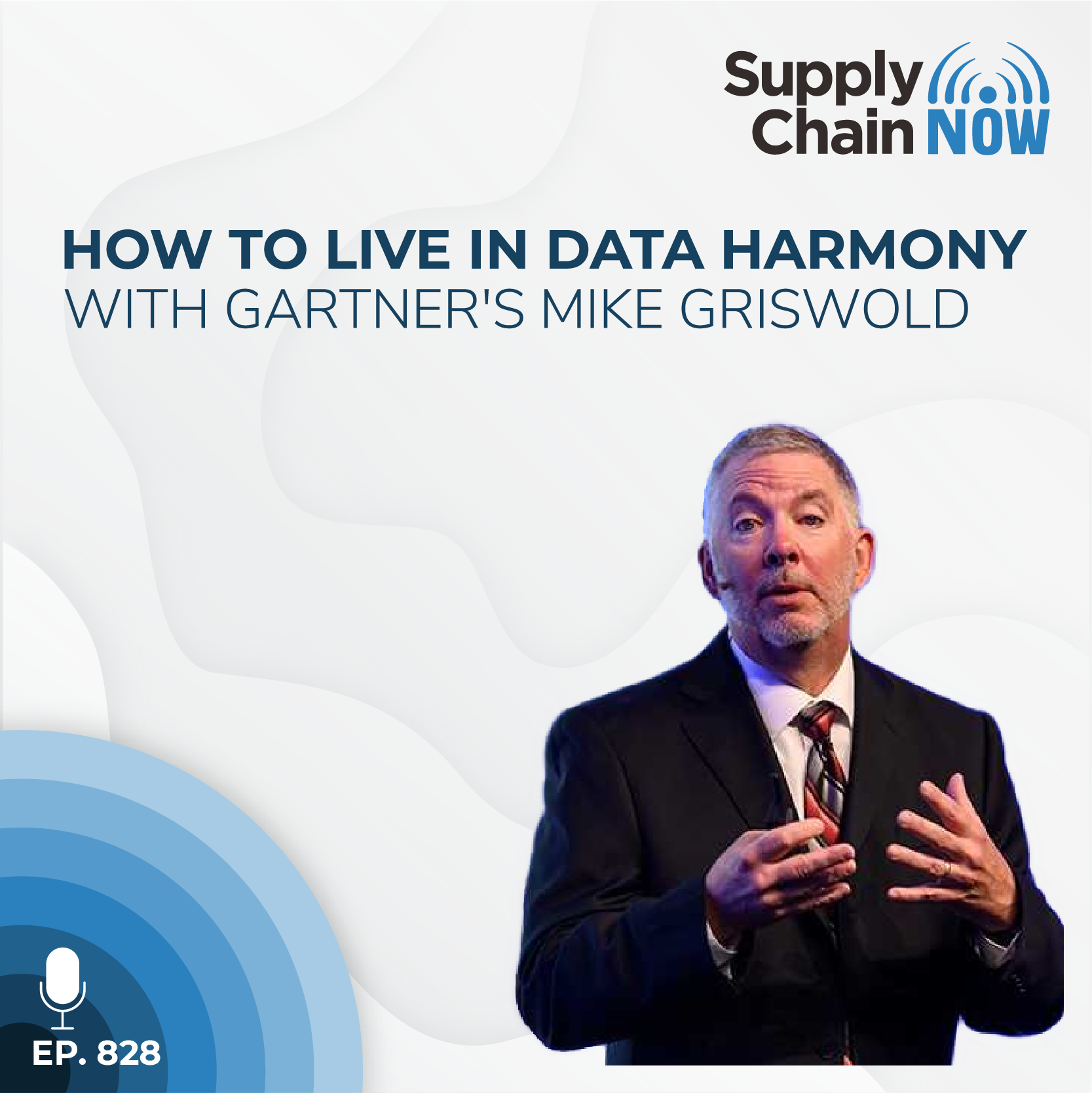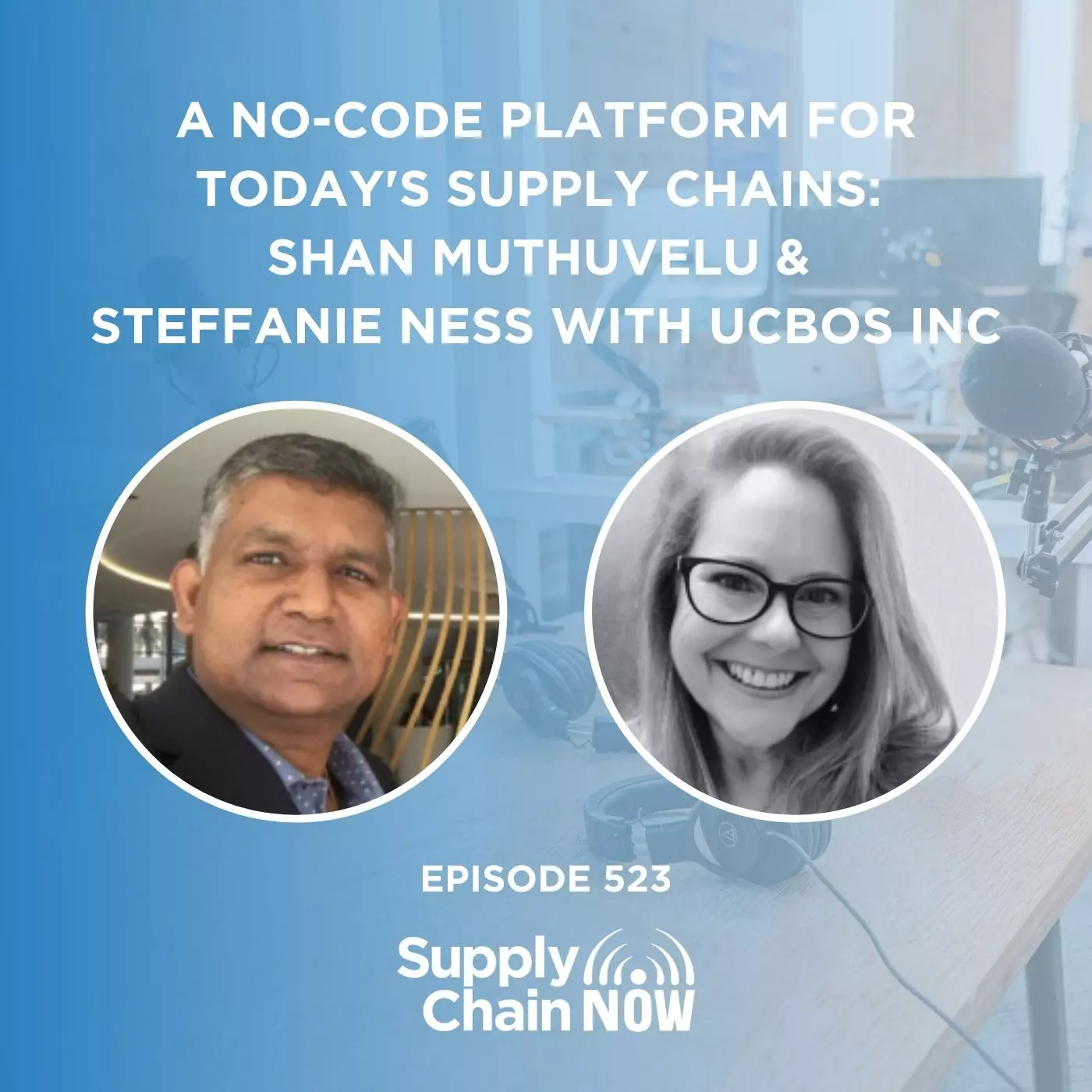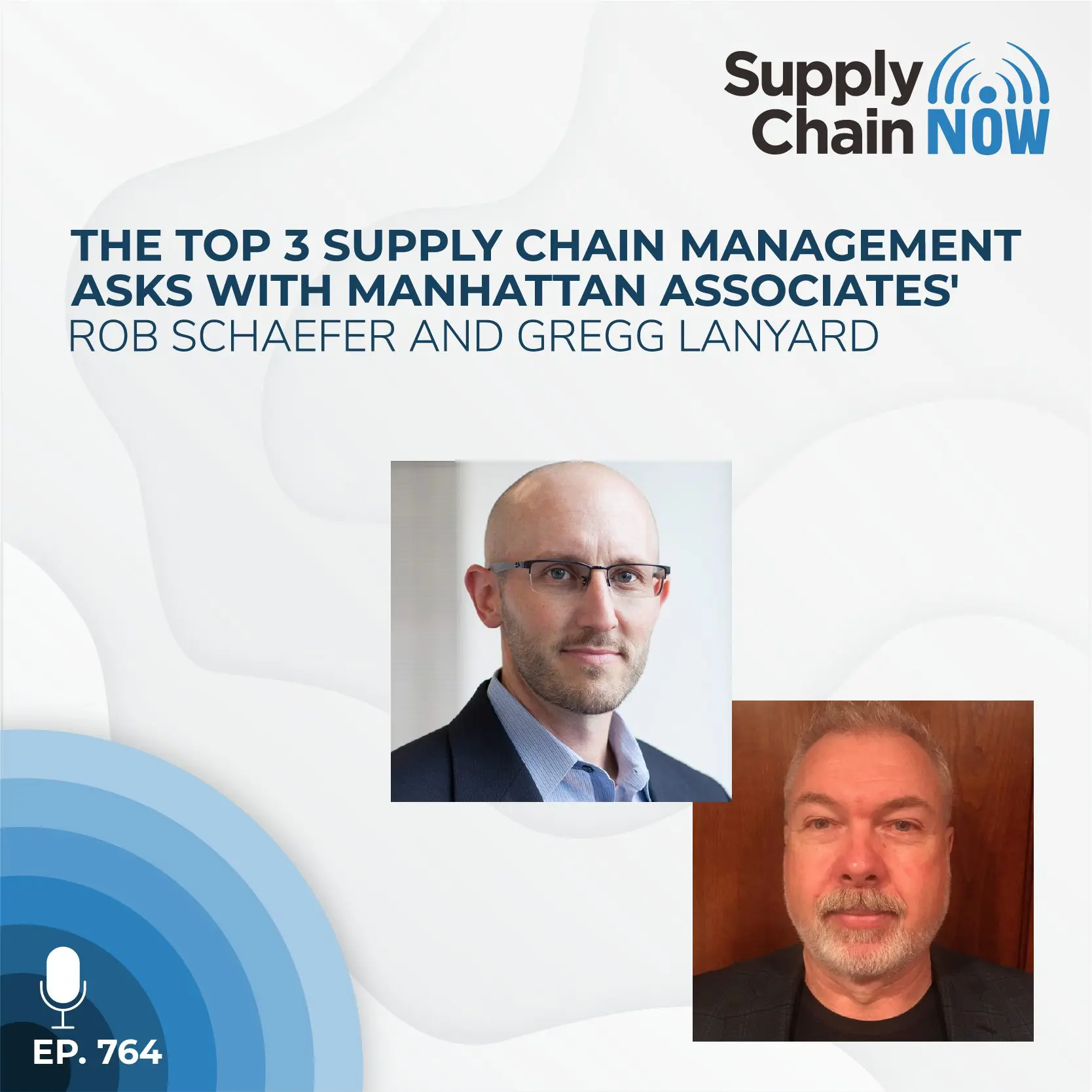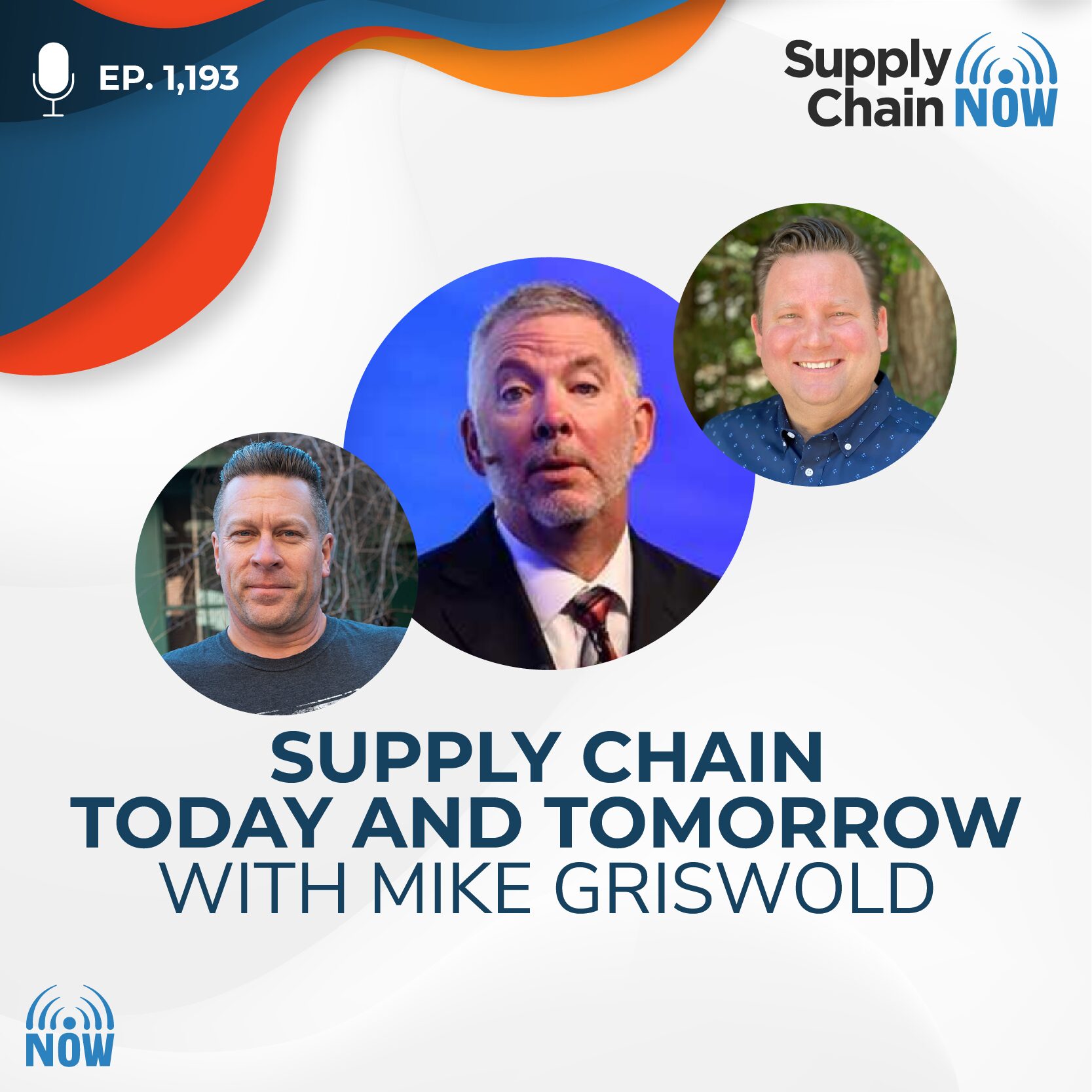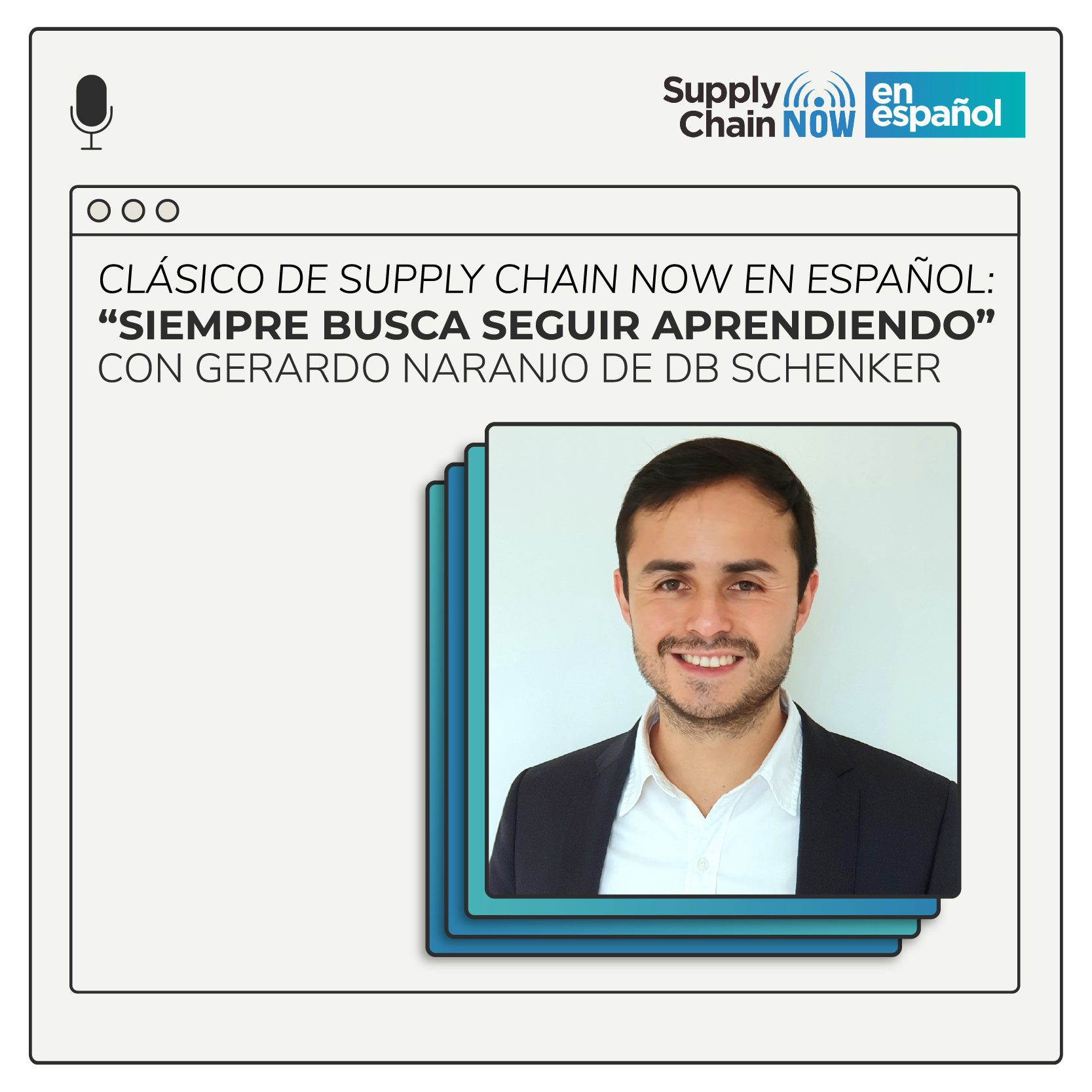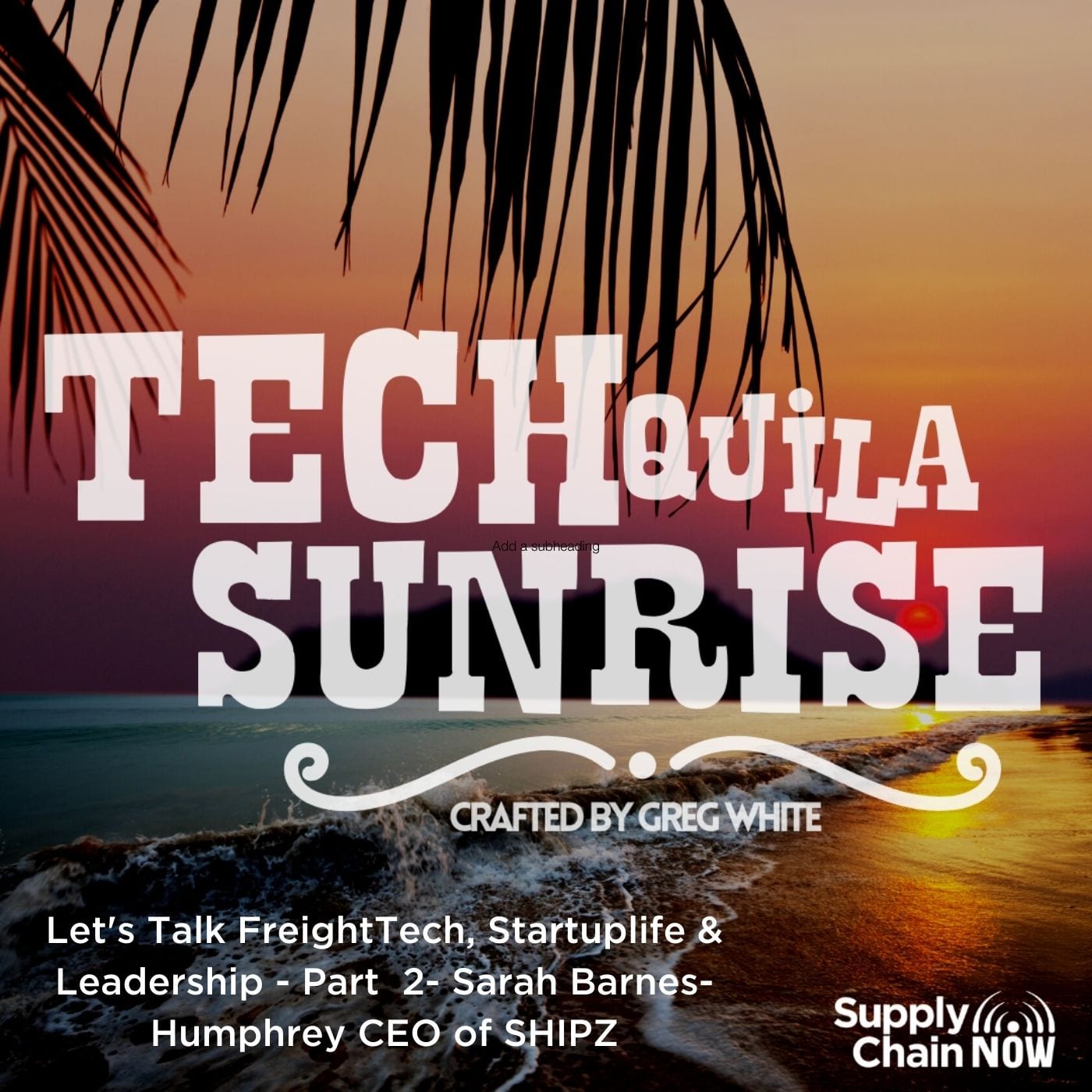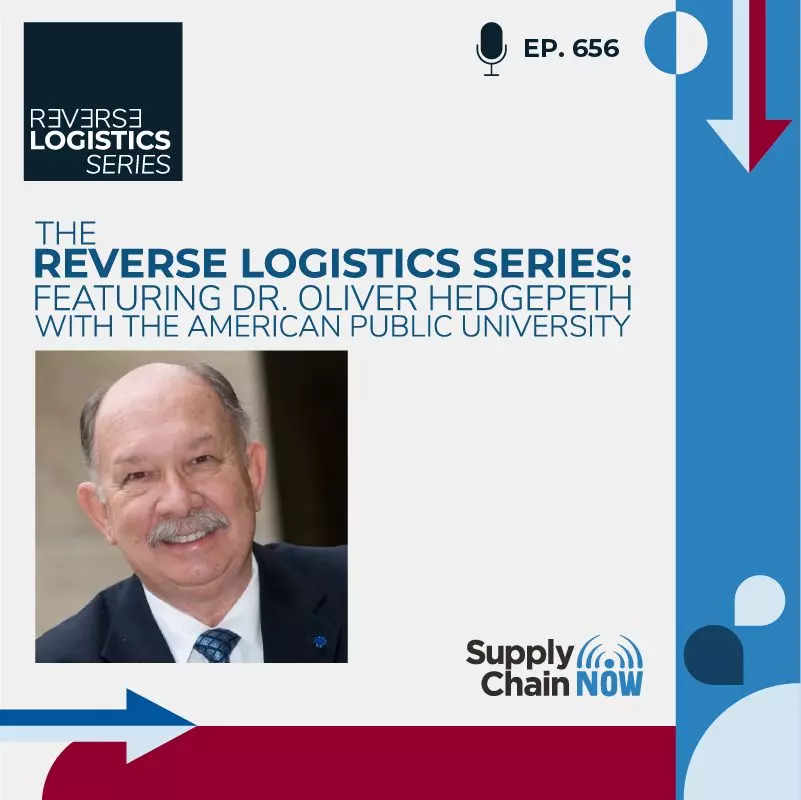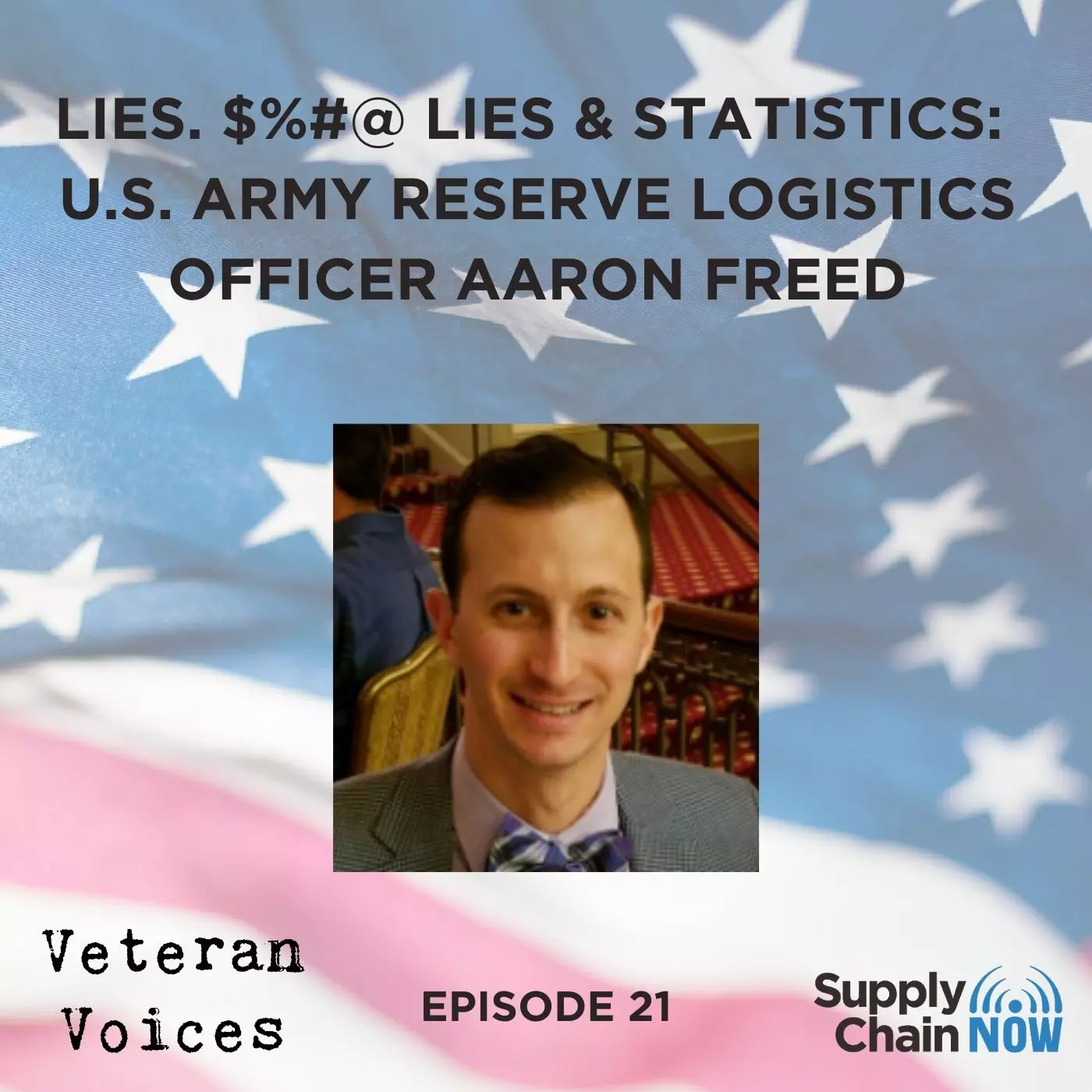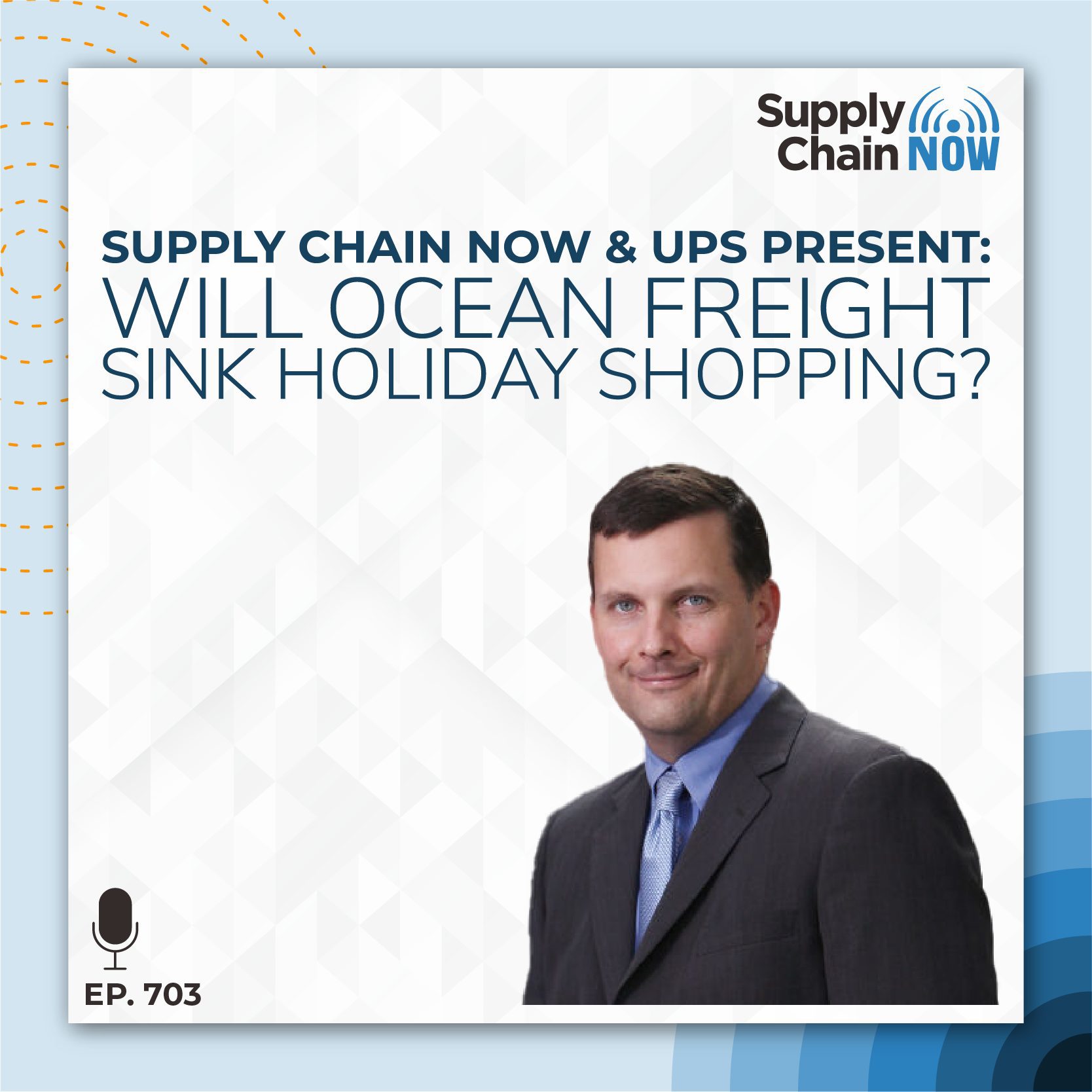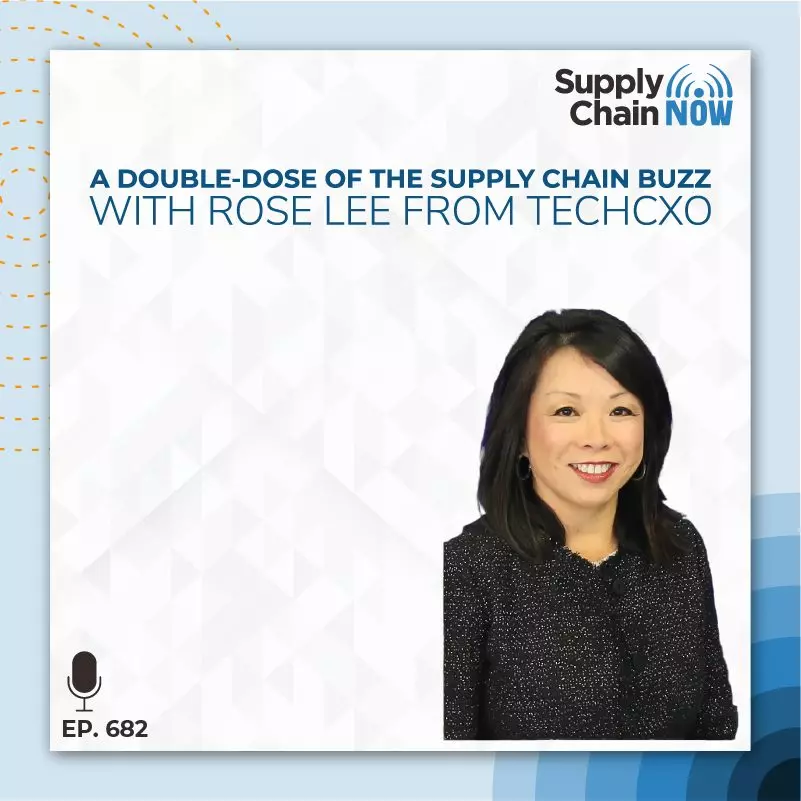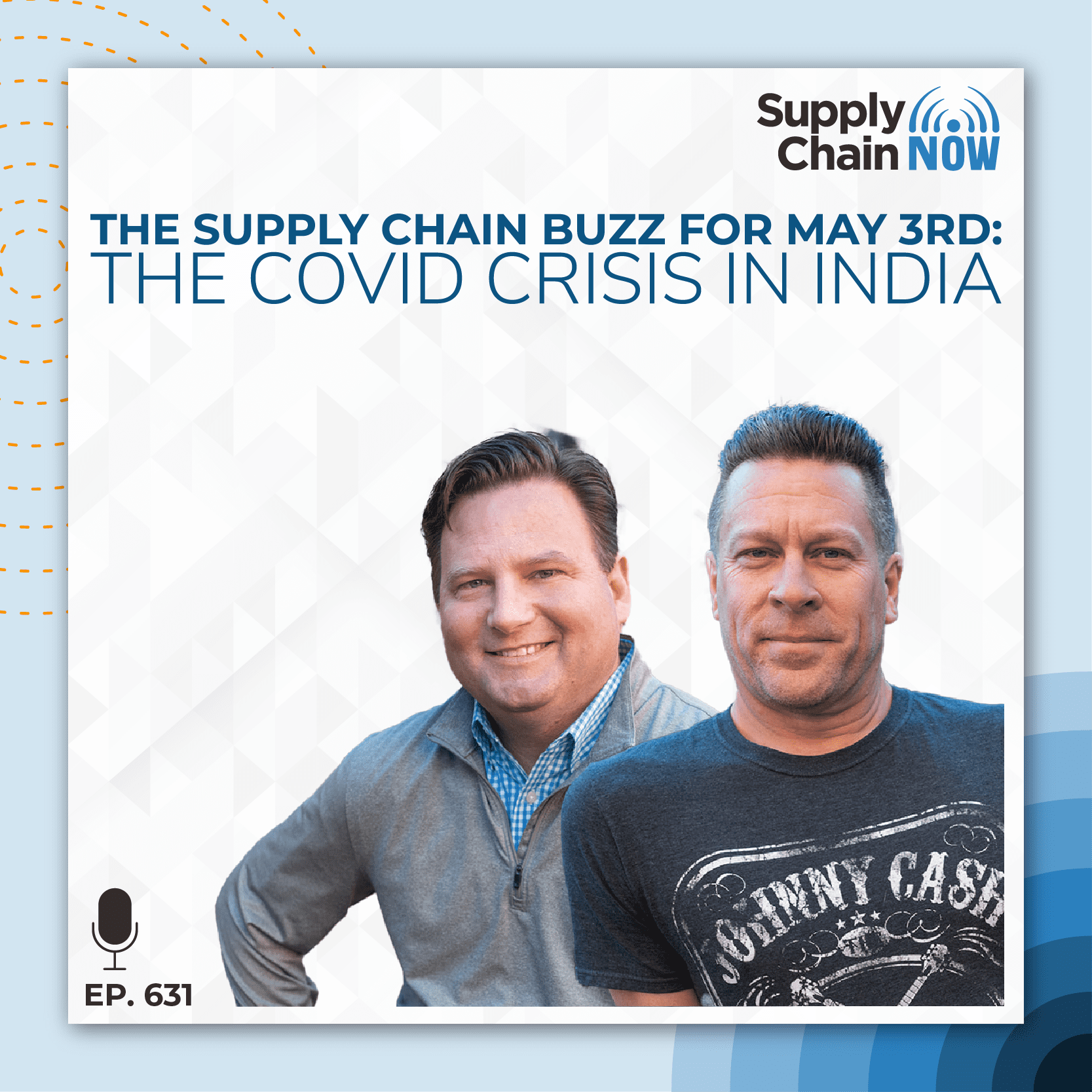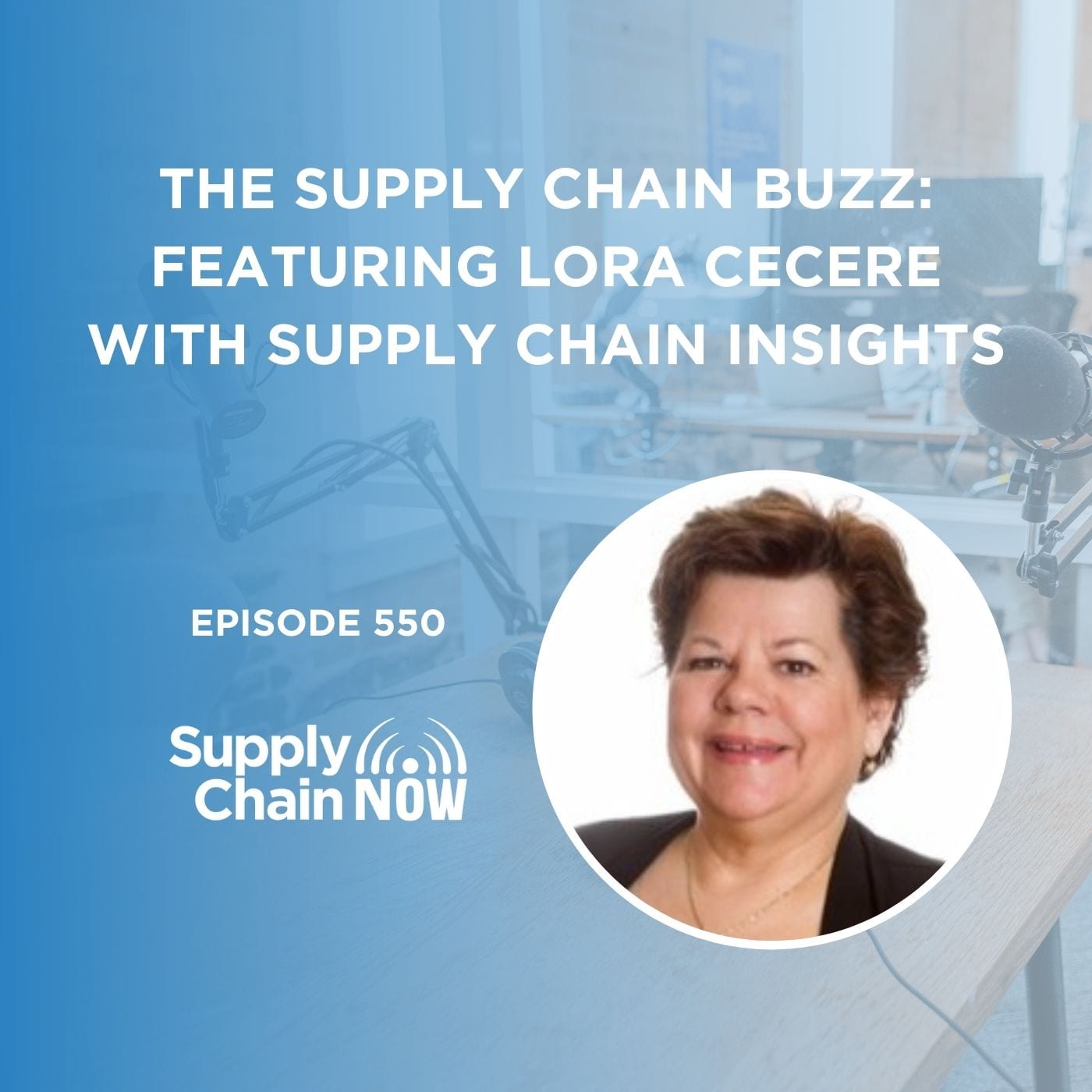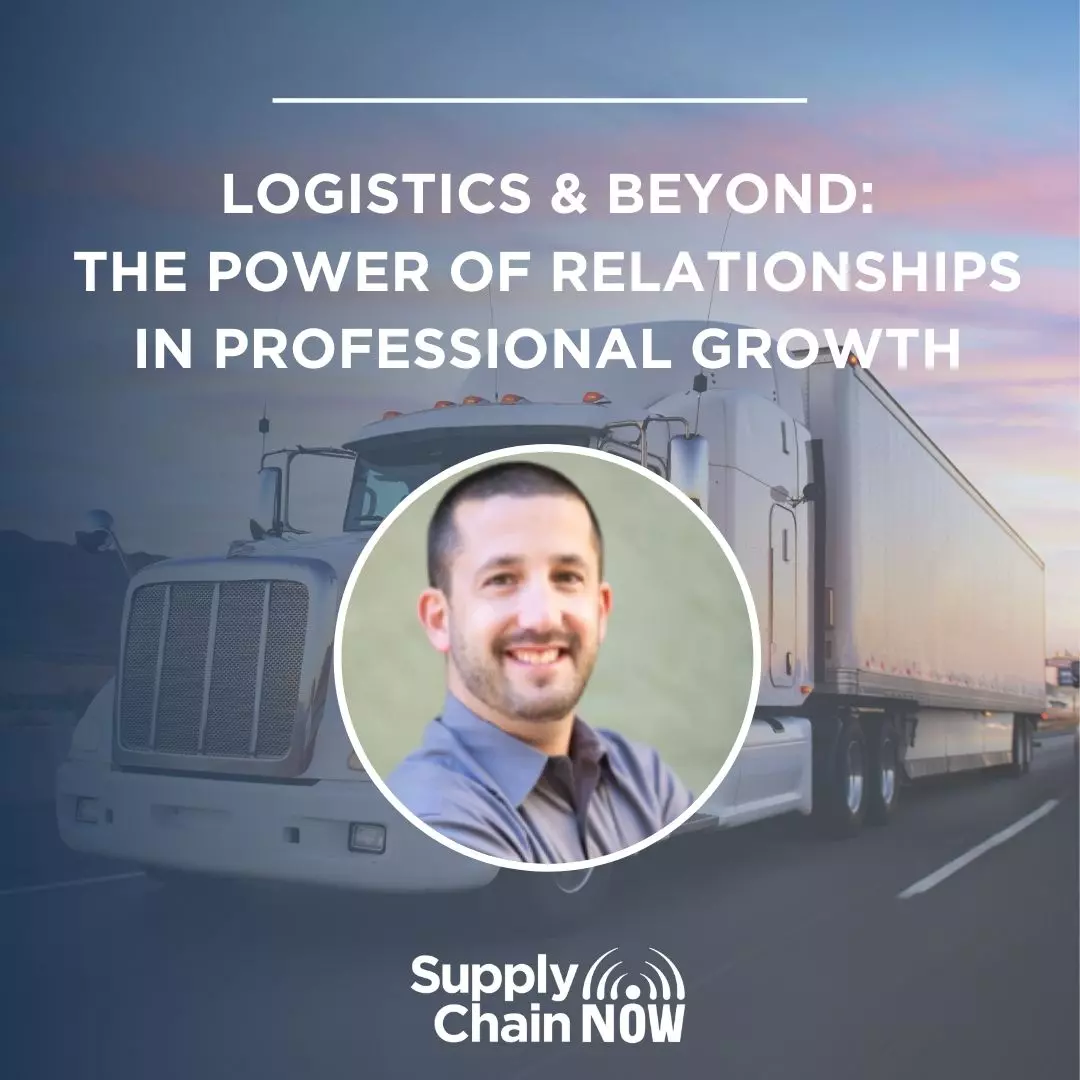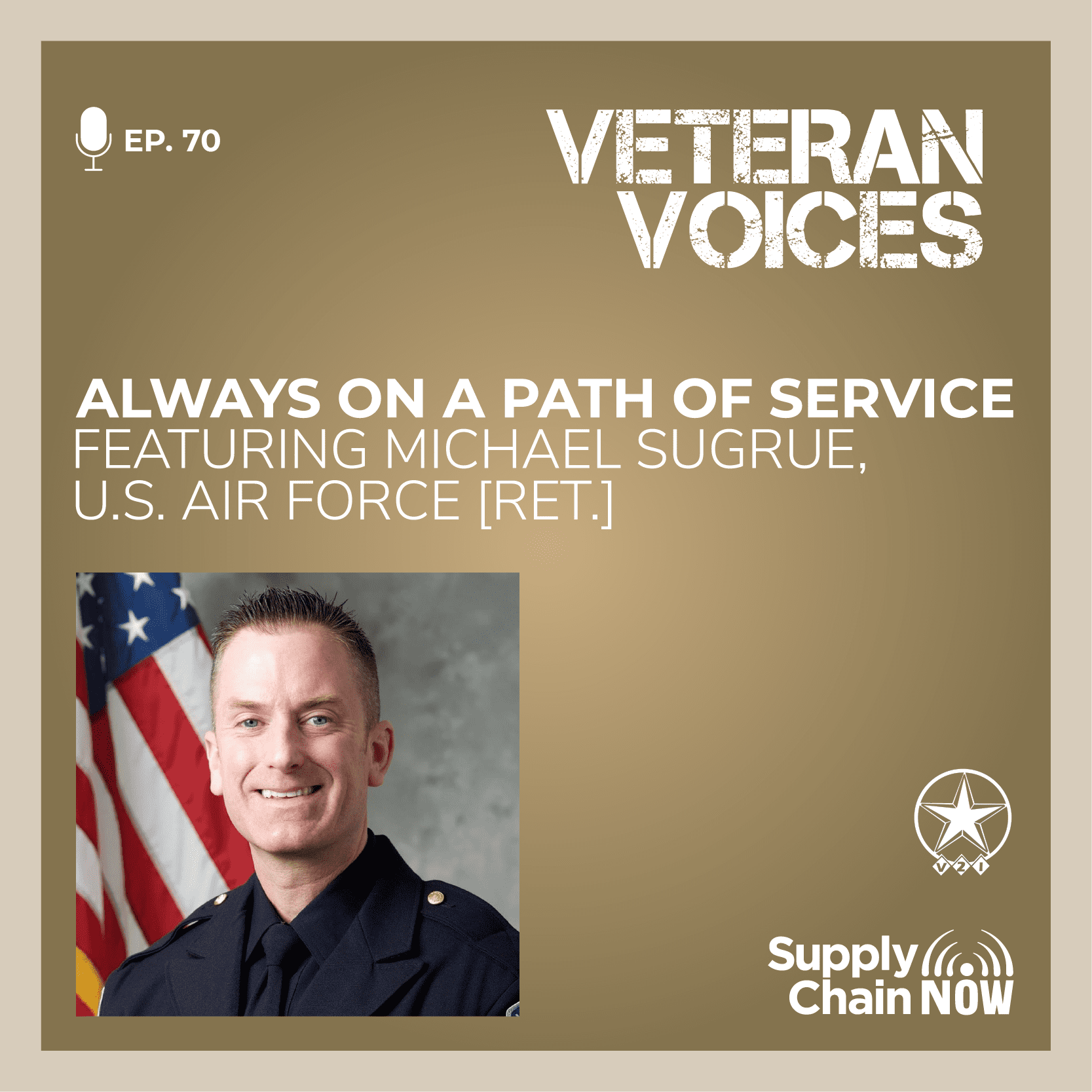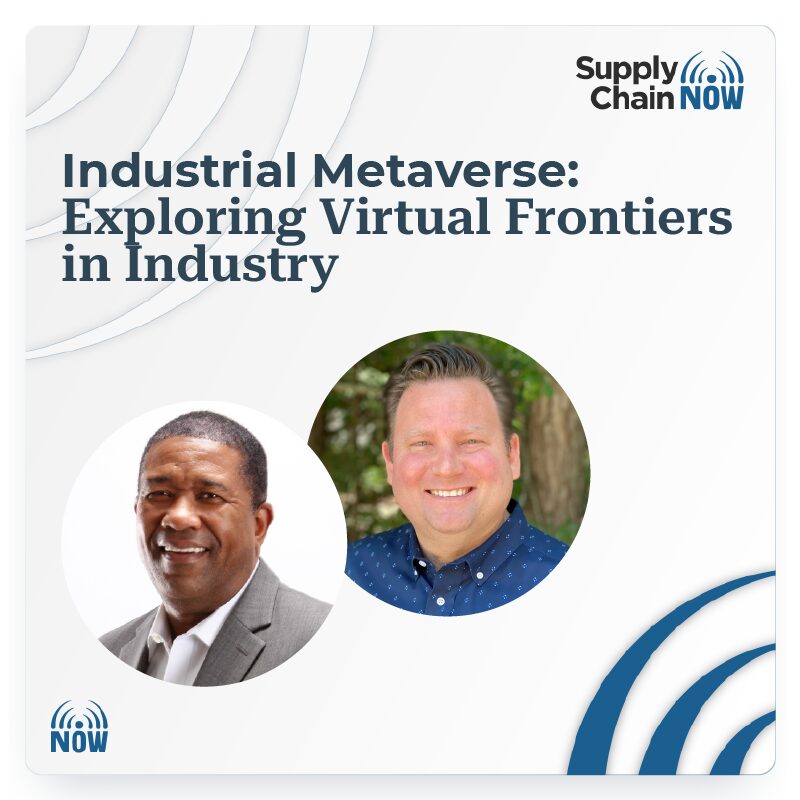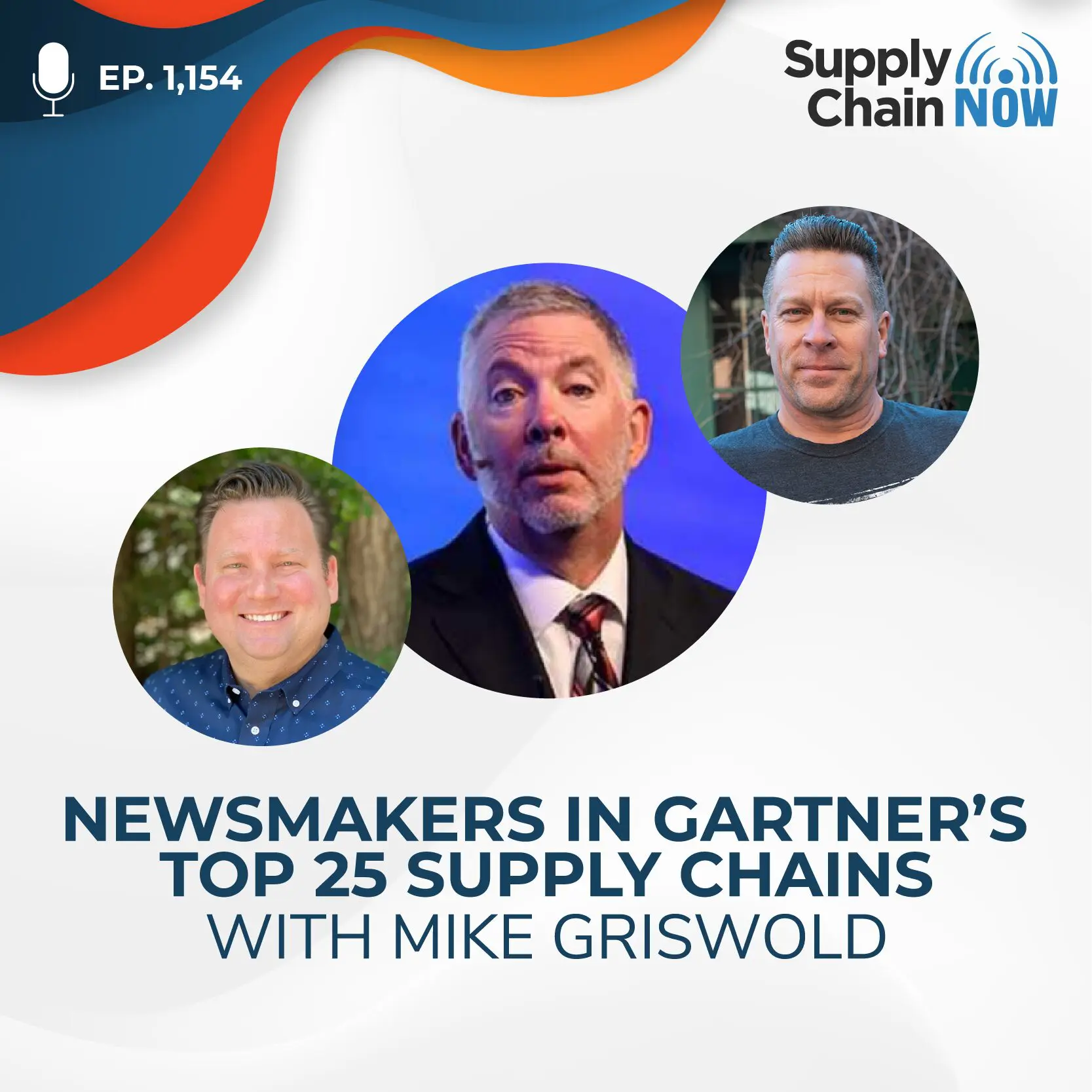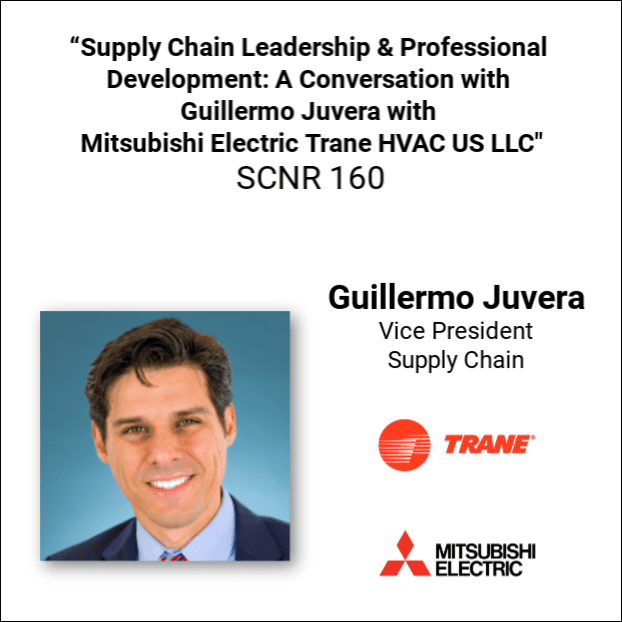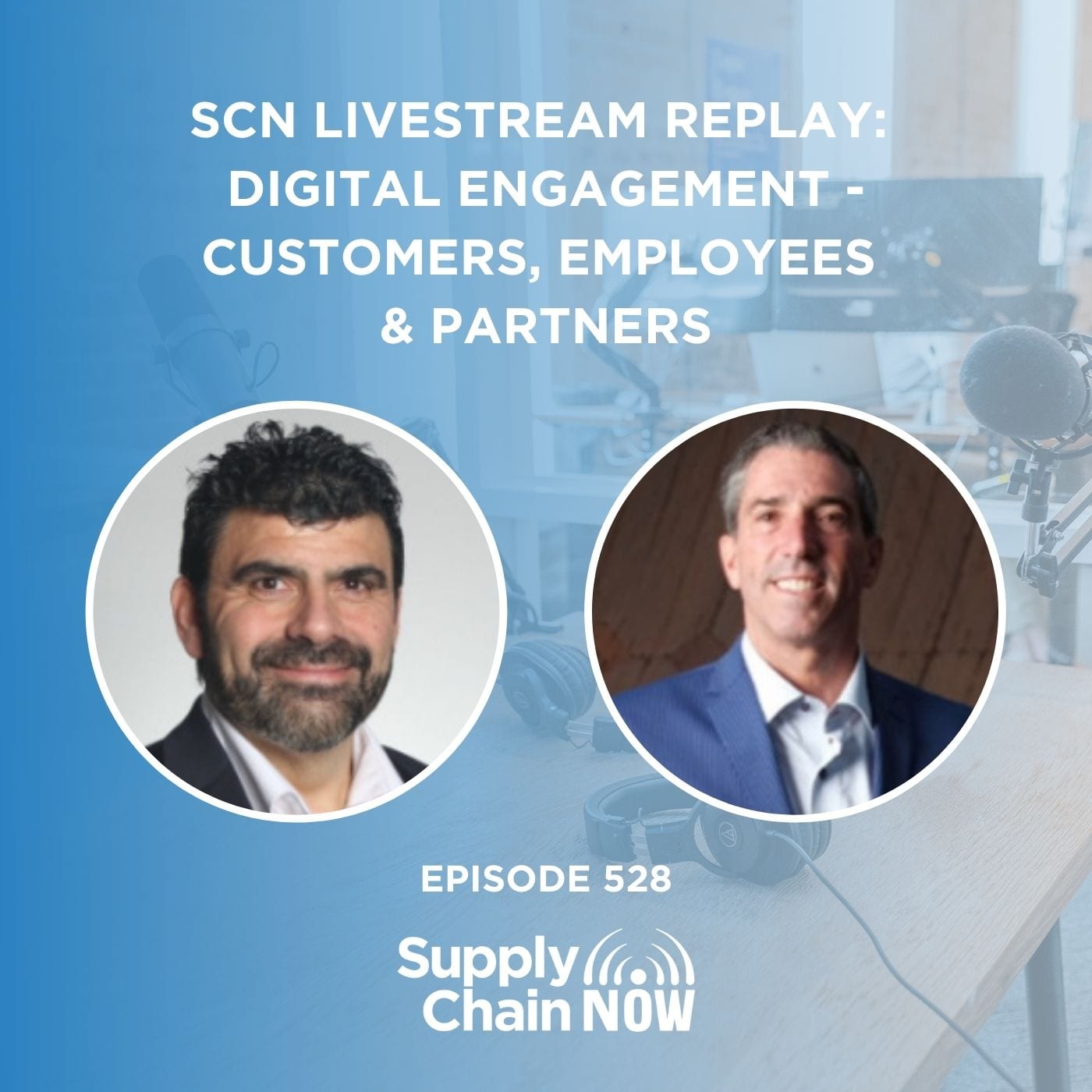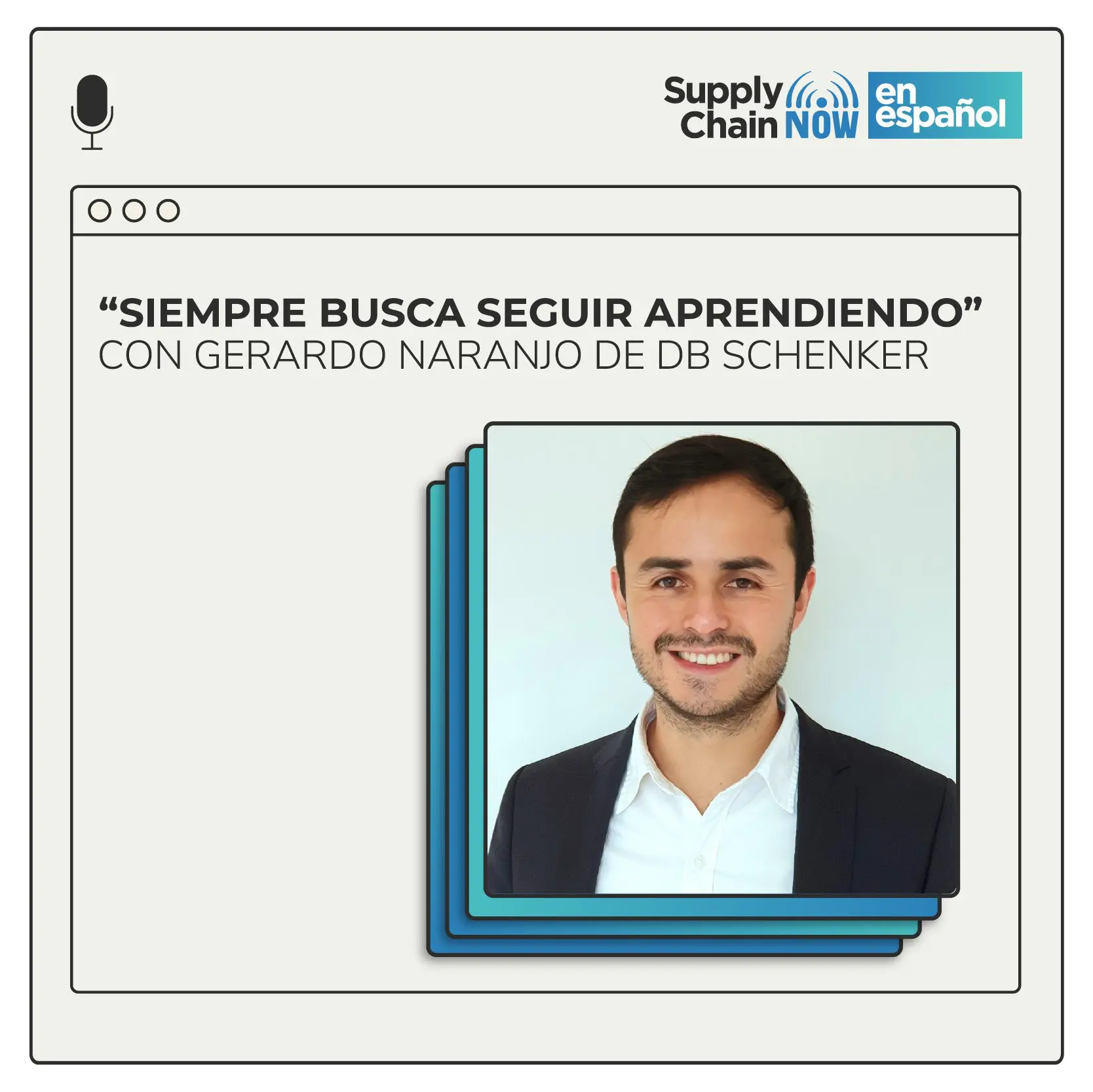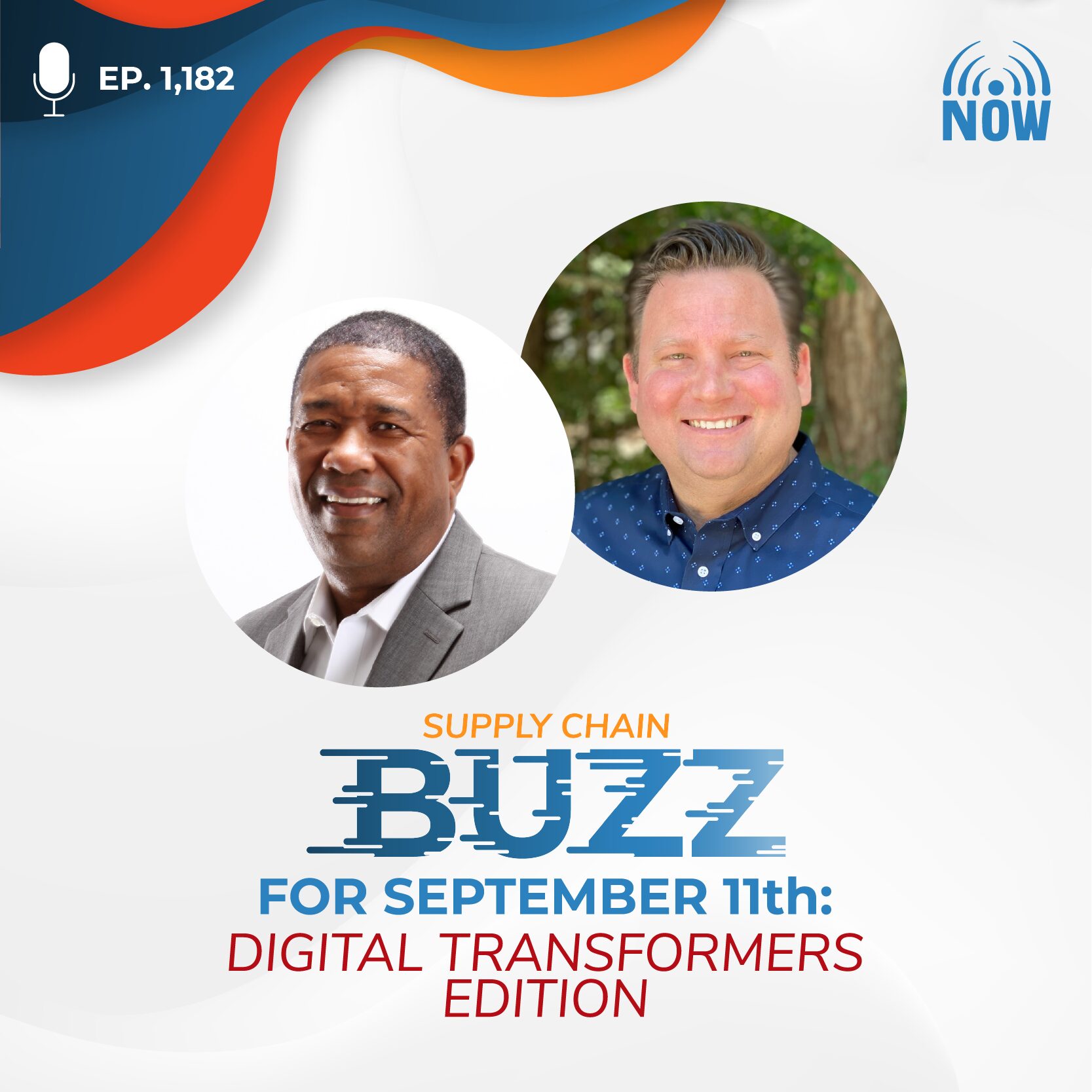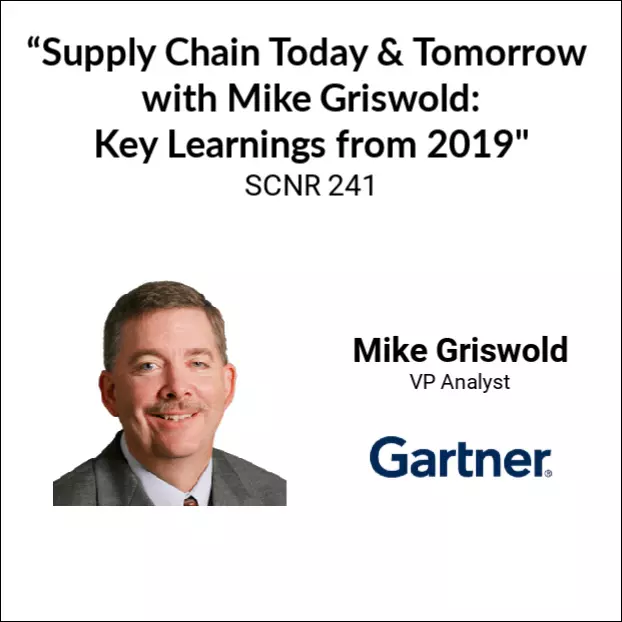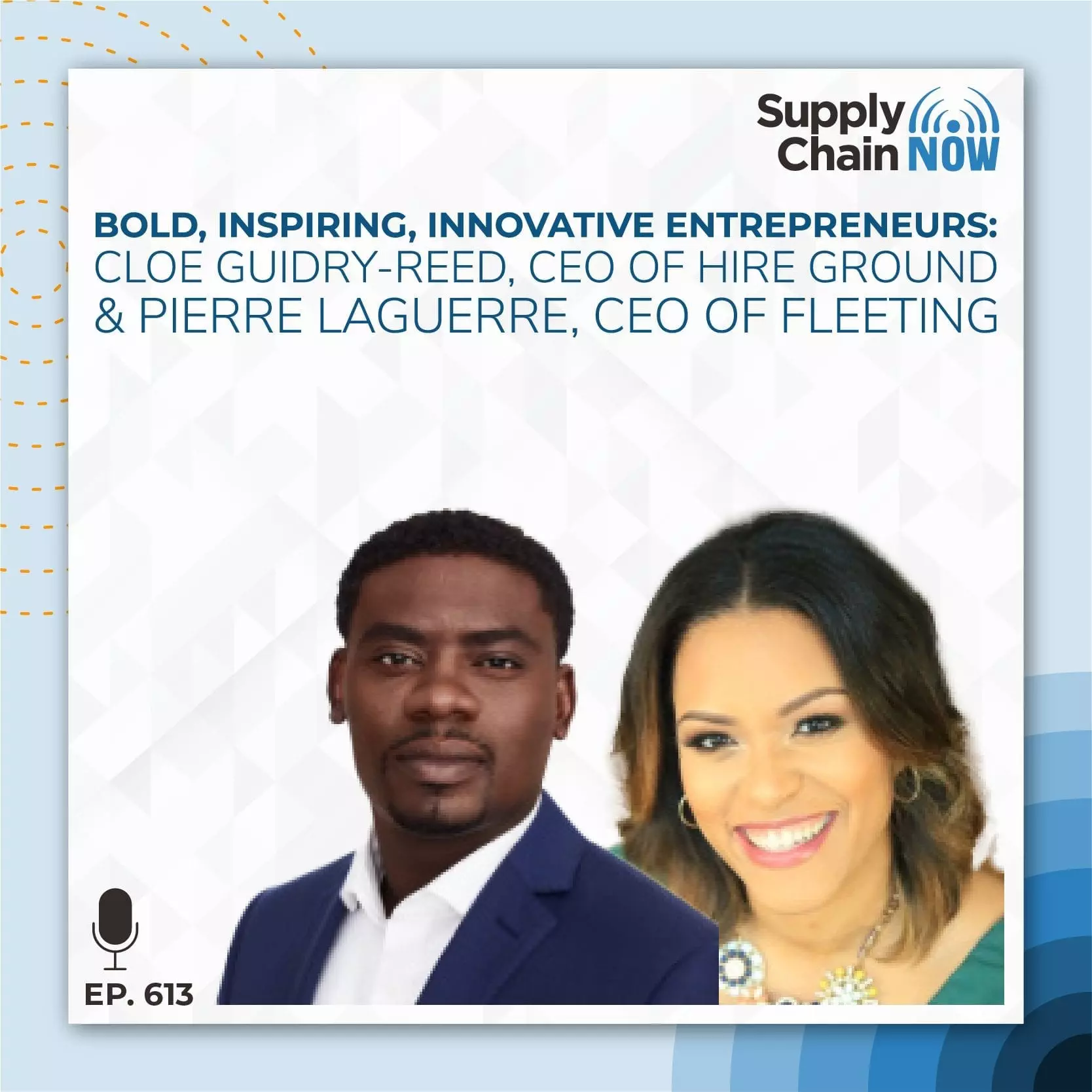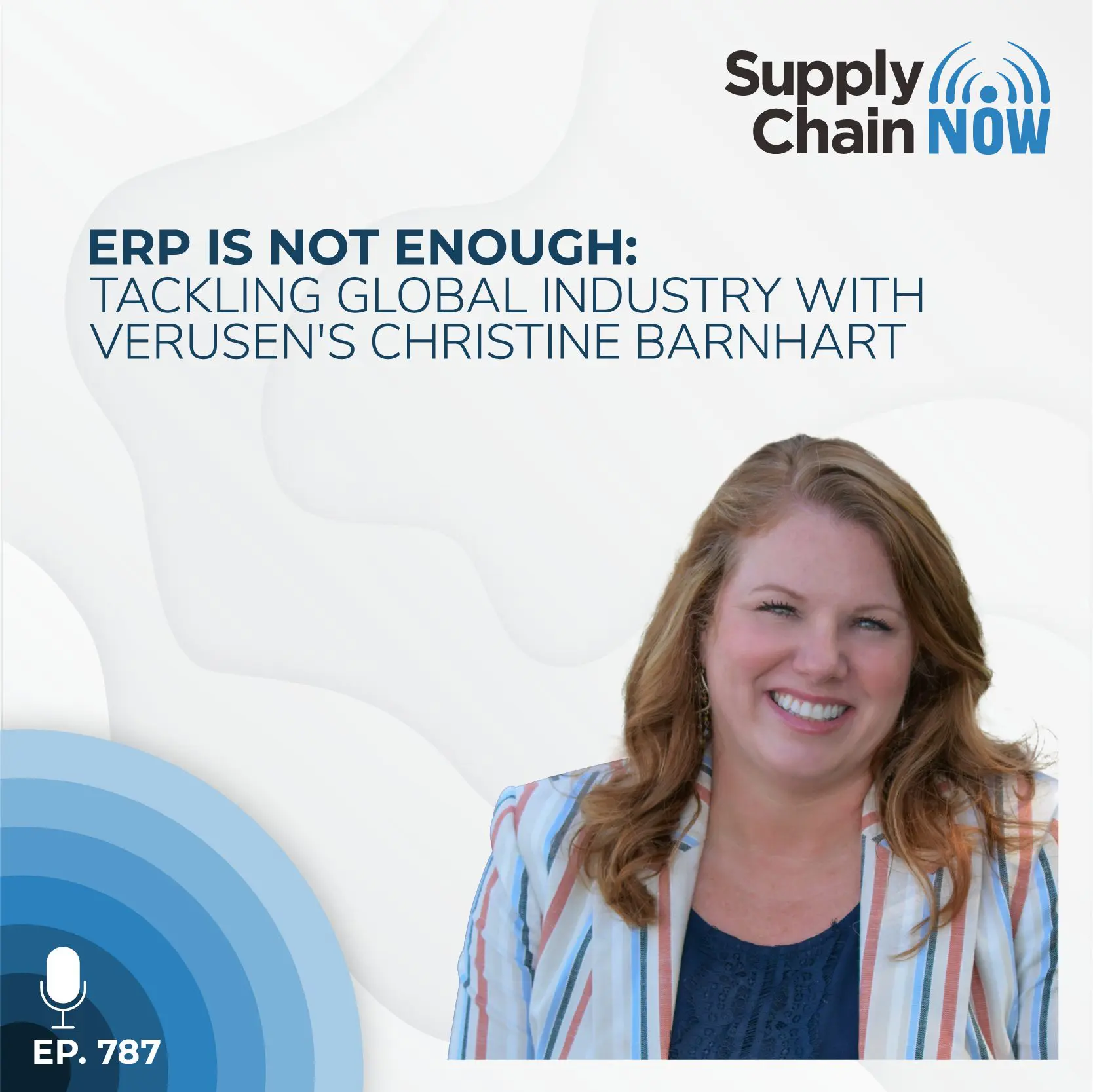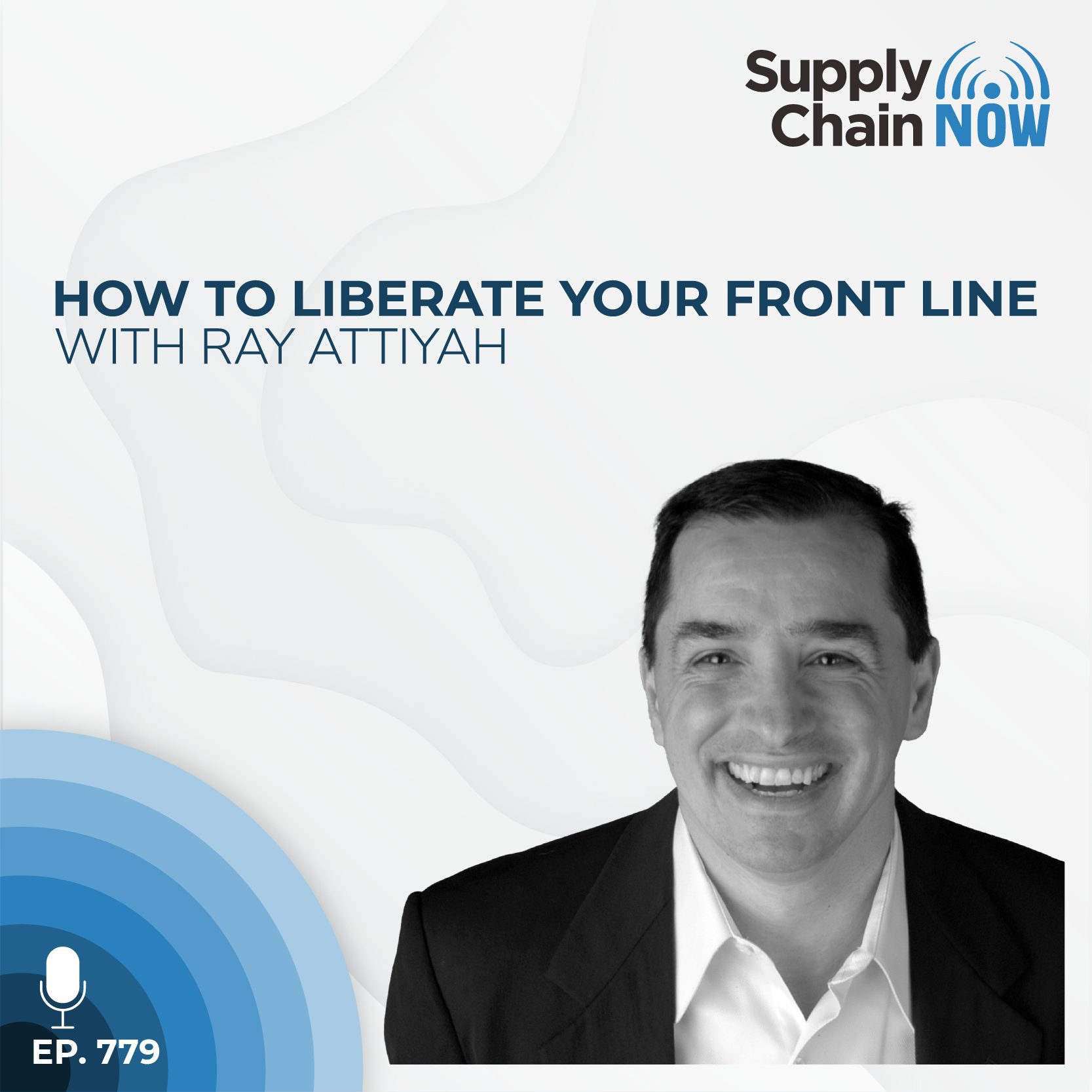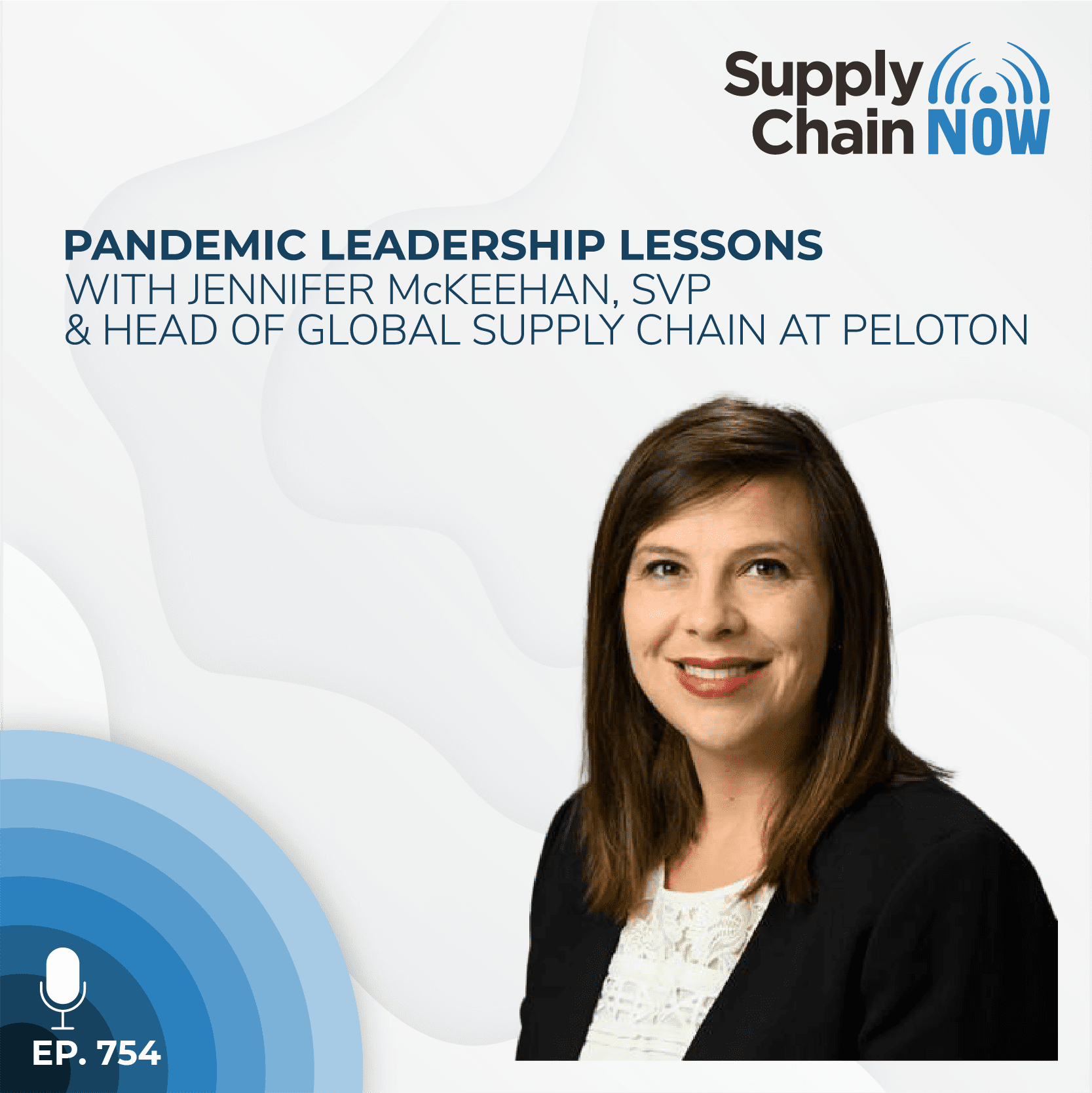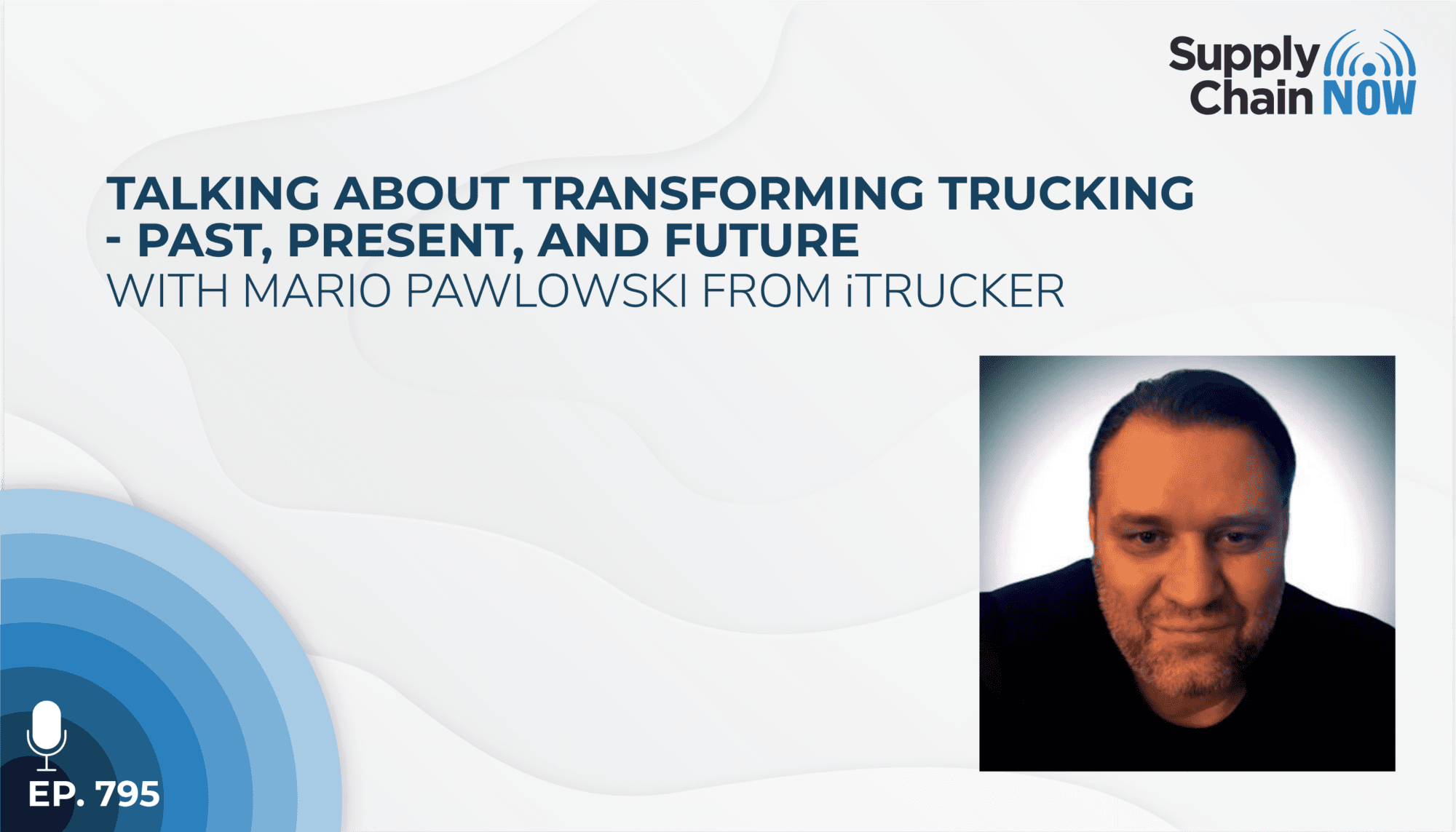
Trucking is a way of life. You have to love them for that. But the world's changing, if they do not adapt, they're going to be out of business. And there's nothing they can do about it; it's the evolution of humanity and business.
-Mario Pawlowski, CEO of iTrucker
Episode Summary
Today’s business world is consumed with the potential of emerging technologies: digital transformation, automation, blockchain, and AI. And while not everyone is thrilled with the changes that technology is ushering in, there is little chance of slowing it down – let alone stopping it.
Mario Pawlowski is the CEO of iTrucker, an online community dedicated to helping “old school trucking” connect with the new world of digital transportation through social media and technology. Mario has an appreciation for the traditional culture of truck drivers and a passion for new technology – and he is combining them to transform trucking.
In this interview, Mario joins host Scott Luton to talk about his perspective on the challenges that face today’s truck drivers and the opportunities that await them if they are open to what the future has to offer:
– Why AI-piloted drones are the future of final mile logistics, what Mario describes as the “heart of the supply chain”
– The potential applications he sees for blockchain and blockchain-based technologies
– How today’s drivers feel about the progress being made in autonomous vehicles, and why the news is better than they think.
Episode Transcript
Intro/Outro (00:03):
Welcome to supply chain. Now the voice of global supply chain supply chain now focuses on the best in the business for our worldwide audience, the people, the technologies, the best practices, and today’s critical issues. The challenges and opportunities stay tuned to hear from those making global business happen right here on supply chain now.
Scott Luton (00:31):
Hey, good morning, everybody. Scott Luton here with you on supply chain now, welcome to today’s show. Hey, today we’re finally interviewing a big friend of the show. We’re gonna be talk talking about the latest developments areas like last mile delivery drones, and yes, even blockchains say tune for an intriguing and informative conversation. So with that said, y’all buckle up on introduce our guests here today. He’s been described as a daydreamer, a creator, a startup starter, also an influencer and amplifier. And one of my favorites, a culinary passionista most importantly, though, he’s an innovative entrepreneur with his, uh, successful history of working in supply chain, especially in the trucking industry. So join me in welcoming Mario Pawlowski CEO of I trucker Mario, how you doing?
Mario Pawlowski (01:15):
I’m good. How are
Scott Luton (01:16):
You Scott? Doing wonderful. It is so neat to finally be able to meet you in the 2021 version. I, I guess, or maybe 2020 version of in person it’s been a long time coming. Yep.
Mario Pawlowski (01:27):
I, I mean, <laugh> when you said in person. Yeah. It kind of sounds, uh, <laugh> like a 2021 and 2020 in person over the zoom, right.
Scott Luton (01:37):
<laugh> well, I look forward as I’m sure you do of getting out in person maybe, uh, next year and breaking bread together, right.
Mario Pawlowski (01:44):
For sure. For sure. I mean, uh, I would be more than happy to do that, you know, and we not actually not leaving far from each other, you in Atlanta, I believe that’s right. I’m in, uh, Sebastian, Florida, which is, uh, it is, uh, it’s a few hundred miles still, but not that
Scott Luton (01:59):
Far. Well, we’ll make it happen. Maybe we’ll do it a stuck at a, uh, truck stop who knows, but great to have you here today. I’m looking forward to diving into, um, a, a wide range of topics and, uh, what we were gonna start though, we wanna start with, uh, getting to know you a little bit better. So tell us where you grew up and, and give us some anecdotes about that upbringing, Mario.
Mario Pawlowski (02:22):
All right. So, well, I grew up, obviously I was born in, uh, Poland. Uh, I grew up there, uh, but, uh, since I was a teen, I was hungry, you know, to see the, you know, the world, you know, especially Western world, you know, because when I was a kid, when I grew up, I was still communist in Poland. So we basically, you know, we are prohibited, you know, to learn English, we’re prohibited, you know, to go abroad, you know, unless he was going to Russia or Ukraine or countries like this, the Eastern black countries. Right. But in 1989, uh, I was, uh, 19 nine. I was about 14 at this time when the communis collapsed cause of the, he started the whole movement and the borders opened. And when I was 17, uh, I moved to Belgium. Okay. For a few, uh, few months. Uh, I started learning French a little bit cuz Belgium, you know, um, do
Scott Luton (03:19):
You still speak French?
Mario Pawlowski (03:21):
Not really, but I have French partners and I’m actually about to start learning again. I, I, I know some words, I remember some things, but I was 17 I’m 47 now. So that was 30 years ago. So it’s kind of long time. So basically, uh, we were going, uh, I was going to, you know, all over the Western Europe, you know, Germany, France, uh, like, uh, as I mentioned before, uh, I was, uh, living in Belgium, uh, for some time came back to Poland. And then when I was, uh, 21, between 21, 22, that was 1997. I moved to New York city, uh, where my grandma was there. My father, uh, he also lived there in 1980. There was even same apartment. Uh, so I moved there, uh, to New York city. That was the best thing will happen in my life. Uh, I love New York city <laugh> well what’s
Scott Luton (04:14):
So let’s talk about that for a second. Uh mm-hmm <affirmative> two quick follow up questions. Number one, to live in all of these different regions and cultures and cities, was that, um, was that, how do you view that? Was that really tough to kind of make new friends each stop? Or do you see that as an advantage apart, you know, made you who you are?
Mario Pawlowski (04:31):
Absolutely advantage. Okay. Nothing tough. I mean, there was some tough things, but you know, uh, I’m kind of person, you know, uh, it’s kind of, you know, like a, I really love to meet people, you know? Right. I really love to talk to people. I really love to, you know, like, uh, meet the new cultures and everything else. So basically I, it started in Western Europe, but the New York city was a kind of game changer for me. Okay. When I moved there, I actually, my mind change, like, uh, totally. Uh, there was something that was the experience, which actually set the way I’m thinking right now.
Scott Luton (05:09):
Okay. So let’s, let’s talk really quick about that. Cause I wanna get the food before we get into the heavy stuff. So you said New York city is your favorite place in the world. What’s one thing, just one thing you love about New York city
Mario Pawlowski (05:21):
Mean, uh, the is no other city in the walls I ever be in like New York city. It’s a kettle of everything, especially food restaurants, you know, nightlife. I mean, I was 21, you know, imagine me coming 21 to Brooklyn, New York. Right. And then, you know, going to Manhattan and everywhere, you know, restaurants, uh, uh, you know, I was working in a restaurant, you know, in Manhattan. Okay. It, it was just, you know, great experience. It was just unbelievable experiences actually set the course of my life, you know? Wow.
Scott Luton (05:54):
Well, so, and I, on that note, you said that New York city to, to your point there, it had changed how you, you viewed the world. Yes. Tell, tell me about that. What, how did that impact your worldview?
Mario Pawlowski (06:05):
Uh, it seemed, it’s opened my mind basically. Uh, it’s opened my eyes, you know, uh, I came from Poland, you know, Poland is kind of, you know, you can say conservative country. Okay. I mean, at least half of it. Uh, and you know, the point of, uh, I mean, people were trying, you know, to put some, you know, things in my head, which I didn’t, I wasn’t feeling comfortable with that. I knew I was following it, but I wasn’t comfortable with that. When I moved to New York city, uh, in mother of months, everything changed my mind opened, uh, on the wall, on everything else. And it, it was just liberating. Yep. I mean, basically, yeah. That’s what you said, you know, you liberate my mind, you know, let my mind go. You know,
Scott Luton (06:52):
<laugh> love it. The art of the possible, it sounds like really took some blinders off. Um, so you, you mentioned, um, one of the things, many things that New York is a capital of is food. And you worked in a restaurant as, and we share that I worked in a restaurant, although I, I was never a chef or a cook. I was a server, a bartender, uh, um, a bus, a bus boy, uh, bus tables for one really tough summer in Columbia, South Carolina didn’t make a whole bunch of money, but it taught me many things about people. And it taught me also, which is, is, um, one of my favorite lessons. I try to instill in my kids, we gotta level those folks. Those, those are some hard working folks that help make things happen. And, um, one of my least favorite things is see people that are rude, uh, or just, uh, to, to our servers.
Mario Pawlowski (07:40):
So tell me, tell me about it. Uh, I hate it. I was, I, I also was working when I was working in a restaurant. I was a small, basically Polish American restaurant in Manhattan on the, I’m not sure that was on the first avenue and seventh street. It was called therea. There, uh, is close right now. Uh, and I was, I was working there. I was only one guy and I was like, uh, maybe 17 womans in the kitchen, you know? So you can imagine <laugh>
Scott Luton (08:08):
You learned a lot, right? Oh, I learned a lot smarter
Mario Pawlowski (08:11):
From it. So, and I started as a dishwasher actually. Okay. In the few days, uh, actually the owner of the restaurant, uh, there actually that was the name in the restaurant was the name Theresa. She figured out that I can cook. Wow. So there was a, you know, there was a master chef, she was a woman and, you know, she, she, she was really great, you know, but she was also, you know, very kind of like, you know, uh, strict about everything. Right, right. Let let’s put it that way. <laugh> but she also figured out that, you know, I can cook, you know, so, and, and the other thing is, you know, the, all of these people, you know, all of the womens, you know, they, they were kind of like, kind of like a picking on me, you know? So I basically, you know, I was, and I’m not the person, you know, to pick on, you know, right.
Mario Pawlowski (08:54):
Like <laugh>, I’m gonna fight back right away, you know? So, but after, you know, after the kind of like a, a period of two, three weeks, right. We were all going along, you know, and, you know, I was, you know, doing dishwashing job, I was cooking. I was, you know, uh, basically like putting food on the, an arrange on the place and everything. And then, you know, the job was so intense. I remember the, the restaurant was so busy. Basically. Sometimes I was working 14 hours a day for seven days a week. Wow. I was coming back home. I was just falling asleep, waking up, going there. And after, you know, a few months, I basically, I said to the, uh, owner, uh, I’m quitting. I can’t do it right. Burn out,
Scott Luton (09:36):
Burnt out. That’s, that’s something, of course, I think a lot of folks listening to hear today, whether they worked in a restaurant or not, that is a prevalent, um, a prevalent feeling across industry, uh, given the last couple years that we’ve been working through. Um, so Mario, I, I feel like you, and I could kick off maybe a new culinary podcast and have plenty based on your passion. That would be great. That would
Mario Pawlowski (09:58):
Be cool. That would be really cool. <laugh>
Scott Luton (10:00):
Well, who knows? We may just do that, but in the meantime folks, uh, uh, one of the, you know, so Mario’s got a big following across social, but y’all check him out what he’s dropped in supply chain chow on our Facebook group for some of his gorgeous dishes. Um, so one, one last question about food, and then we’re gonna get into I trucker and, and what you’re doing there. Right? What is, um, it doesn’t have to be your all time favorite dish. It could be a recent favorite, but what’s one of the, one of the, your dishes that is one of your favorite ones to prepare and serve others.
Mario Pawlowski (10:30):
Great question. Uh, there’s actually two dishes. Well, I mean, there there’s much more, I mean, there’s a lot of dishes, but I can tell you what I love and what, um, you know, people I’m serving, you know, like, uh, my friends when I’m, you know, inviting, you know, for a, for a Christmas or, you know, whatever, you know, the, you know, like the dinners. Right. I love steaks. Okay. I, I’m crazy. I’m obsessed with the dry age steaks. Okay. And rare, dry air, age, state six. So I was so obsessed from, there was a restaurant in New York city over a hundred years old. It’s called Peter Luer steakhouse. I dunno if you heard about it, you heard part. Okay. So Peter Luer steakhouse, I was leaving basically a few streets from the PI Luer steakhouse when I moved to United States to Brooklyn. Okay. When, when I went there, first time, first ball, I had to wait in the line.
Mario Pawlowski (11:20):
Uh, the tables were empty, like a half empty, and the manager was standing like this. Okay. And I was next to the bar with my friend and we were waiting for the table and I was asking like, uh, listen, the tables are open. And he was like, uh, uh, no, they all reserved. And he was looking at us and waiting, so they have to give him 50 bucks. Okay. And was okay, which table you want? When I had the steak, I fall in love with that. Wow. Steak and the sauce. It, it just unbelievable. You know, then I start learning about, you know, dry engine process. Okay. It’s taking, uh, anywhere from month to, you know, two, sometimes three months, you know, depends. And after years I was so obsessed with that. I actually developed an idea. I was actually, uh, reading some chemistry, some, uh, some other things, you know, and combining with my recipes. And I come up with the idea to dry age, the single steak. Okay. In mother of three days,
Scott Luton (12:11):
Three days. Okay. You’re gonna have to,
Mario Pawlowski (12:14):
You’re gonna have to it taste it, it tastes even, I wanna say it tastes better than Peter Luer <laugh> it tastes great. It’s not maybe, you know, that, you know, tender. Right. But the taste is just unbelievable, you know? And I can tell you that, you know, this is my best, you know, your question, your question, this is the best thing, what I love to do. Plus I love the French and Italian kitchen and I’m making fusion, French, Italian, and Polish kitchen together. I’m gonna,
Scott Luton (12:45):
So you’re gonna have to, we’re gonna have to get together and you’re gonna have to, uh, make, prepare your, uh, Mario Pavlovsky version of the Peter Luer fame, steak three days aged. I love we’re gonna get
Mario Pawlowski (12:58):
Together. We’re gonna make it. I love to do it. I would love to, I would love to cook for cook for people. You know, that’s what brings me a joy, you know, agreed. It’s not for myself, I’m cooking junk food. <laugh>, you know, for myself, you know, just, just to know, eat, but if it’s coming to cooking for somebody, then know,
Scott Luton (13:14):
Uh, it’s gotta be the real deal
Mario Pawlowski (13:16):
I’m changing in my, I mean, things changing in my head. Right. You know, I love to cook for the people, you know, and even when I’m cooking for the people, I usually not eating, you know, too much <laugh> well, so I just love people to enjoy, you know, I just love my friends and whatever, you know, who’s eating it, you know, to enjoy, you know, what, I that’s, that that’s bring me a joy, you know, that’s bring me this feeling, you know, that people, you know, appreciate it. And they like it. Yes. And it make me feel good, you know? Yes, Mario,
Scott Luton (13:43):
It’s, it you’re exuding that passion, you know, I could always tell in our other interactions kind of across social and whatnot that you loved it, but you, it, you can feel your passion for cooking. So we’ll revisit that down the road a little bit in the meantime though. So today, uh, we wanna get a lot of your expertise in POV, uh, across logistics, transportation, supply, you name it. And I wanna start with, um, what you’re doing at I trucker. Uh, so tell us about, I trucker and tell us about your role there and what you do.
Mario Pawlowski (14:11):
Well, uh, I’m a founder and CEO of I trucker and my wife, of course, she’s a president of iTracker, uh, Margaret, uh, she can, you see her, you know, around the social media, around me, she’s also kind of, uh, you know, uh, right now she’s getting like a gaining momentum, really good, you know, wonderful. So basically, uh, yeah, we started, uh, as I mentioned before we started, uh, the initial idea was, uh, for a load board that was in the end of 2016, beginning of 2017. Then after a few months, one of my, uh, friends, uh, he actually gave me an idea about the ELD because the ELD was coming. Okay. And the ELD, if I, uh, if I remember good, that was, uh, implemented in the December 17th, 2017. Sounds about right. Yep. Yeah. So basically he gave me this idea, so we actually stopped developing the load board per and we started developing, you know, the, uh, ELD project, which right now I can tell that was one of the worst decision I made in my life.
Mario Pawlowski (15:18):
Really. Yeah. So basically, because, you know, I’m very picky. Okay. I’m, uh, I can see, you know, if somebody’s developed my developers, developing the websites for us and I’m seeing the pixel it’s off, I’m basically, you know, getting mad, you know, so I know it, it’s very annoying for it. It’s ADHD, all kind of thing. You know, it’s very annoying for me, you know, because it’s sometimes taking time to, you know, uh, and you know, people don’t see it. I see it, you know? Right. And which is, which is, you know, which is kind of annoying. You see, it’s kind of, uh, slow down the progress of development, but you, you’re making things. It’s my fault. It’s my fault.
Scott Luton (15:56):
But you’re making things better though. And, and,
Mario Pawlowski (15:57):
And it takes you at the end. Yes, yes. At the end. But anyway, so basically a tracker was that. And then, you know, when we started developing the ELD at one point, uh, because, you know, ELD is a software connector with the hardware, hardware is gonna went to the OBD port in the, uh, track or whatever back, you know, was using ELD. So basically, uh, there was an issue at the end with the connecting the software with the hardware. We had the hardware from company from Michigan, and basically the hardware, you know, looks good. We went to a show to the, um, that show in Dallas in 2017, we met the people there from Michigan and they basically, uh, they gave us, uh, you know, the hardware, but my, uh, ex-partners developers, they couldn’t connect it, you know, really the software. So you weren’t
Scott Luton (16:47):
Happy with how the tech technology product ended
Mario Pawlowski (16:50):
Up playing out? No. No. So based, so then you pivoted, right? No, basically, uh, at one point I actually, uh, actually I, I suspend the project because, you know, I wasn’t happy and I didn’t want to, you know, I mean, the project protocol was working. Everything was working, but it wasn’t working properly. So basically in my mind, if I want to sell something to, you know, to, to the people, to the, my, uh, customers. Okay. Uh, if the product is not right, I don’t wanna sell it because, you know, it’s, it’s pointless, you know, to get, uh, bad feedback and then, you know, make, uh, you know, trouble for the people. So basically I suspend the project because of that, you know? Okay. Because I wasn’t happy with the,
Scott Luton (17:33):
Well, so, so let’s talk about app trucker and its current in, um, incarnation. What is it? So what, what do y’all do today?
Mario Pawlowski (17:40):
Okay, so, well, uh, we, after that, we put it, uh, we basically suspend a whole light packer project, but at one point we realized we start getting, you know, lots of, uh, followers on social media. OK. When we realized that we open a group okay. Which is called trackers or past present in future. Yep. Which right now we have, uh, about 100, 5,000 members. Wow.
Scott Luton (18:05):
That’s on Facebook. And is it another places beyond Facebook where it’s Facebook book that
Mario Pawlowski (18:08):
No, it’s Facebook, Facebook, it’s Facebook, it’s a group. It’s not a page, you know, there’s difference between, you know, page like a business page. Like we have a art tracker page we have about, uh, I don’t know, 90 something thousand followers. And, uh, the group is a different thing group. It’s more engaging. Well basically all the members can pause the things, you know, there is different members posting different things, you know, it’s 24 hour job because we have to, you know, manage the group. So Facebook is managing us <laugh> we have to manage the group. So, you know, you know, you know, tracking industry, you know, trackers. Right, right, right. They do not, you know, really like, uh, uh, thinking when they, you know, using about the wording, you know what I mean? <laugh> so Facebook is very strict about it. They try, I mean, Facebook algorithms, right?
Mario Pawlowski (18:58):
So you gotta intelligence power at algorithms, which is kind of funny because this AI power at algorithms, they not working properly because they basically deleting, you know, suspending members for us without our knowledge. Cause they’re using words and they basically, uh, this algorithms, they taking this word are out of the context, you know, using so, and all the members they actually writing to us and they about like, Hey, why I’m suspended? And I have to explain, we didn’t suspend you, Facebook suspend you. They say, no, you work with Facebook. And we are like, no, we don’t. <laugh>
Scott Luton (19:39):
So active moderation, clearly a group that big, um, I can appreciate how big of a job that is, but I love how you’re engaging, uh, that demographic, that very important demographic, uh, that helps make global business and certainly global supply chain happen. Um, so y’all check out iTracker the group on Facebook. And of course, no,
Mario Pawlowski (19:57):
Actually it’s a iTracker is a page. That’s right. That’s right. iTracker is a iTracker is we have a website, uh, which is, you know, iTracker. We, there is a news and, uh, we actually preparing a few other things and uh, and there iTracker, uh, and there is a group which is called, uh, crackers of past present in the future.
Scott Luton (20:15):
That’s right. My, my apologies, I got that wrong. Y’all checked that out. Uh, it, I love the imagery that comes out of that. I joined not too long ago and, and to see some of the beautiful machines, the artistic machines, and then, and then some of the, uh, other banner takes place is pretty cool. Um, so let’s, I, I wanna move Mario, uh, into, um, some of your take on what we’re seeing across, uh, currently across global supply chain kind of hot topics, or, or maybe not so hot. Uh, but they’re intriguing to say the least. So I wanna start with last mile delivery. Cause if anything’s really gotten, uh, a lot more challenging and, and you know, that was getting challenging before the pandemic, the pandemic just has continued to make it more challenging. Tell us about what’s going on there. And, and some of your thoughts there with mass last mile
Mario Pawlowski (21:03):
Delivery last mile delivery is, uh, you know, kind of, you know, part of the supply chain, you know, supply chain is, uh, only in the United States, I believe is, uh, 8% of the GDP, which is brilliance. Okay. It’s huge. Okay. Right. Last my delivery is it’s of course, you know, it’s been what it’s been it’s last, my delivery, which mean like Amazon or, uh, you know, fat, whatever, you know, who’s delivering. So basically, uh, what I’m taking right now, uh, well, I mean, it’s a huge issue because, you know, the backlogs of the, you know, of the, by the ports, you know, all the, you know, the, uh, cargo ships, you know, waiting to be unloaded and all the things. So it’s like a domino effect basically. So, you know, demeanor effects when you, you know, you just kick one, you know, piece of the, everything is going through like this.
Mario Pawlowski (21:54):
No. And that’s where it is. And it is going from the beginning, from the shipper through the port, uh, to the tracking company and then to the last mile deliver. Okay. So, uh, in my opinion, you, the drones are the future of last mile, the especially lightweight, lightweight, last mile delivery, which has been small items. You know, there are, you know, bunch of, uh, drawings, uh, a bunch of companies they develop in different drones, like, you know, WinCo, WinCo is one of, you know, I believe they work with ups and, uh, uh, I don’t know with, for us, with Walgreens, for sure. Right. They are delivering, you know, like, uh, vaccines or, you know, or, uh, which is great, you know, like a, a medication for the disabled people, you know, imagine, imagine that, you know, somebody is disabled, you know, and the drunk can bring you the life saving medicine, like, you know, like, uh, for diabetes. So never I’m diabetic type too. Mm-hmm <affirmative>, I don’t have to take insulin insulin. I have, I’m taking the medicine. I have to, you know, uh, be a good boy from time to time. Hard, hard to be a good B from
Scott Luton (23:00):
<laugh>. I understand. Hey, on, so drones, I know is one of your favorite things favorite, uh, develop across industry. And to your point, though, it is gonna help us uncover so much more capacity in this last mile and get around some of the challenges and constraints there. What what’s, if you, if you think about what you’ve seen lately from drones, you were describing some of the ups and Wal Walgreens and, and some of the healthcare applications, but what else, when it comes to drones, what else have you seen recently? That’s cool. And give us a, a bold prediction when it comes to drones for next year.
Mario Pawlowski (23:33):
I’m a, I’m a fear believer in drones. You know, I, I really love it. Uh, I actually, uh, I, I just, uh, we just opening a blog, which is called last mile error and, and, uh, it’s gonna be all about the, you know, the last mile, the lightweight, you know, delivery. So basically my prediction about drones is gonna grow like, uh, unbelievably the few things, you know, we have to, uh, you know, uh, think about it’s. Uh, first of all, uh, you know, the delivery in the urban areas, like a very dense urban areas, let’s say, for example, New York city, right? Imagine, you know, New York city and imagine the bunch of drone buzzing, you know, between the buildings. Right, right. And every drone right now, right now, every drone have a pilot to just, uh, personal like me and you behind the computer, you know, and you, you are looking at the computer screen and you see the drone, there is a camera at the drone, and you basically navigate this drone.
Mario Pawlowski (24:38):
So for the massive drone delivery, let’s say we would need to use artificial intelligence because, you know, imagine in the New York city, hundreds of drones between the buildings, they’re gonna crash, they’re gonna drop down. They can kill the people. Human cannot do it. It’s, it’s, it’s impossible. It’s not like, you know, uh, uh, uh, basically managing, you know, the airplanes on the airport because they big, okay. There is not so many of them there, the, you know, the space where the airplanes, you know, I mean is, is huge, but the drones gonna be in the very, you know, dense areas, right? So basically without artificial intelligence and automation of navigating this drones, there is gonna be not really possible to do it on the massive scale. That’s my take on it, unless it’s gonna be on the remote areas. Okay. Remote areas are easy. There is no obstacles. Even if these drones are getting more advanced, every basic they have, uh, they, they can, you know, navigate autonomously. They can avoid, you know, obstacles and everything. This is fine, but still in the, for the, like a, uh, massive implementation of the drones and drone delivery without artificial intelligence is not gonna be possible. That’s my tip.
Scott Luton (26:10):
Okay. That is, um, so much more there. We’re gonna have to, I, I got some of the things I want, I wanna chat with you about, so for a sake of time, I’m gonna keep moving. Uh, I, I love the pit, the future that you’re painting. And I, I generally agree with you, um, you know, how can we, how can we open up automation for that, uh, last mile air? I love that. So check out your blog article, um, and create more capacity, get around some of these constraints and, and, and serve people better while keeping everything safe and operation safe. It’s gonna be, that’s gonna be quite a challenge moving ahead. Okay. So beyond how exciting things and developments are taking place in the drone arena, and I love your, your bold and fearless prediction about what’s to come next year and beyond. Let’s talk about blockchain for a minute, because that is equally as exciting. It’s transforming many aspects of global business and so much more to come. I love seeing the really practical, uh, applications that we’ve seen. It seems like there’s the, the drum beats getting bigger and louder, which is a good thing, but what’s one of your favorite applications, uh, Mario, when it comes to blockchain and follow up question, are we still just scratching the surface with the
Mario Pawlowski (27:17):
Technology? Absolutely. I can tell you the, I can answer the second question. We’re scratching the surface.
Scott Luton (27:23):
Okay. That’s the easy one, huh? What’s
Mario Pawlowski (27:25):
So, yeah, with scratching the surface, because, you know, uh, we I’m all into blockchain also because blockchain is, it is basically maybe not equally to artificial intelligence, but it is like a inventing another wheel. So, uh, my favorite blockchain application. Wow. That’s a question, you know, hard to answer, uh, for me, because there’s so many of it, like for, for example, uh, well, besides the crypto, of course, <laugh> right. Besides the crypto NFTs metaverse okay. Everything else is gonna be connected with the blockchain without the blockchain. Uh, it’s almost impossible, you know, I mean, it would be almost impossible, you know, to do some business in the next, I don’t know how many, let’s say few, one decade. I’m not sure exactly. I don’t wanna, you know, make the prediction because I’m not of the, you know, position to really, you know, make this prediction.
Mario Pawlowski (28:27):
I can, you know, I can tell you my point of view. So basically I love the blockchain cause the blockchain can be used in the supply chain. This is actually great because look at this, what’s going on right now with the backlog and, uh, uh, with the, you know, the ships floating, uh, of the cost, California, all the, everything, you know, is there. So basically, uh, even, you know, uh, I saw this joke, you know, <laugh> on my group, uh, that, uh, the winter is in the container floating of the coast of California. That’s why we didn’t have a winter yet. <laugh>,
Scott Luton (29:02):
That’s good. I, I was still that one from you. Uh, but so, but I think that’s a, that’s, that’s a fascinating take you’re, you’re not, you know, I know you don’t wanna make a bold prediction, a prediction on this, but, but what you’re suggesting is that not too many years down the road, you know, if you don’t know, if, if you don’t have blockchain technology baked into how you do business and conduct transactions, you may be out in the cold, uh, absolutely intended. Right?
Mario Pawlowski (29:27):
Absolutely. I was saying that, uh, when I was, uh, in 2018, I believe I was, uh, invited to the, uh, to the, uh, panel, uh, from the freight waves from Craig fuller. Oh yeah, for sure. Oh yeah. Uh, there was even article, uh, and that was my first panel was actually the first time, uh, you know, like, uh, on the stage with the audience in my life, I was, I was terrified and I was with the really big brains, you know, next to me. And I was like, oh my God. So, but I was saying since then, if the tracking industry supply chain industry not gonna start implementing the technology into their business, they’re gonna be out of business. Mm-hmm <affirmative> right now I can say same thing about the blockchain connected with artificial intelligence, but we’re talking about the blockchain. So I’m predicting that the blockchain we’re gonna take over everything because the blockchain it’s really, really, this technology is basically look at the crypto.
Mario Pawlowski (30:28):
Imagine, you know, uh, imagine the, you know, contracts, you know, smart contracts, uh, because that’s basically what, that’s, what it’s called smart contracts between shipper carrier and, you know, between them. So basically if they use the blockchain, because the problem is everybody have to agree to work on certain blockchain. Okay. And let’s say if the shipper carrier and, you know, uh, shipper, broker and carrier, you know, which is usually that way, shipper, broker, and carrier, they will use the blockchain. There is, uh, based, uh, because you know, about the issue when the brokers, you know, trying to cheat the carriers, uh, shippers trying, you know, to change some things, you know, and, uh, like a payments with the brokers and it’s is basically, you know, ending up that the truck drivers or owners, operators, or companies, you know, gearing, uh, usually a, uh, you know, um, at the end they use, they use the suffering right with the blockchain. That wouldn’t be possible. Right. Because when they agree to the deal, when they build the block on the blockchain, there is no way to change it without everybody noticing this. Right. That’s how the blockchain works. So in the supply chain industry, it’s, it’s, uh, for me, it is, it’s basically perfect solution.
Scott Luton (31:47):
Mm, okay. So, uh, let’s see here, we’ve covered, uh, drones, we’ve covered, uh, certainly last model delivery. We, we’ve now covered blockchain. I want to get to one of, I know your favorite topics and, and certainly one of our favorite topics, a topic, and, um, driven by people that are oftentimes, don’t really all the time. Don’t get enough recognition. Let’s talk about the trucking industry and, and truck drivers. So I want to ask you, Mario, um, what do you believe is, uh, the top one or two challenges facing the trucking industry? Well,
Mario Pawlowski (32:21):
Okay. So I’m very, I’m very, we are, are very close to trackers. You know, I’m very close. Like I said, you know, the group, the page, uh, I have many friends which are, you know, real, like I, you know, back to the bone trackers, right. For the last 30, 40 years, we know many of them, we going to the shows, uh, we are meeting all of them and on the group, I’m engaging, I’m talking to them every day, you know, like, uh, every day, all the time, me, my wife, Margaret. So when we running the group, so, uh, they have many, you know, issues, the most challenging issue issue right now. Uh, what they worry about is autonom track. OK. So basically driverless, you know, track, they really worry. They’re gonna lose their jobs. And they, you know, cause you know, the tracking in United States is bit different than all over the world, right.
Mario Pawlowski (33:17):
Tracking in United States is not just the tracking is the way of life is how they living, how they feeling, the whole families are attached to that. You know, it’s, it’s, it’s for them is the biggest, uh, like challenge, you know, and the, the biggest worry is autonomous tracking. And that’s what they talking about, you know? Okay. Uh, besides all the government and DLT over, over, uh, kind of like, you know, over, over regulation, maybe over regulat, which is crazy, we just, you know, regulation over. Regulation’s like a taco with Theto it’s inside the taco and the pizza and with the cherry on the top <laugh>
Scott Luton (33:56):
I love the culinary visual. So let me ask you this. Um, and I’m not trying to be devil’s advocate. Uh, I, we hear a lot of takes here at supply chain now. And, and I’ll be the first to tell you, you know, I’ve never driven a truck. Uh, I’m not a trucking expert. We we’ve, uh, interviewed several, which we, we love those stories cause they’re not, they just don’t get enough attention to appreciation, but you know, automation, certainly the March, uh, and March is right, right on. Um, do you believe that, um, we are gonna be able to rebuild the, the trucking population folks that are willing to, uh, drive a truck for a living, um, or do you, do you believe eventually automation will replace some of the trucking routes and, and those still want to drive a truck? Maybe, maybe the nature of the position will evolve a bit. What, what, what, when you, when you look at what’s to come, where do you see us going? Well, I’m,
Mario Pawlowski (34:50):
I mean, I have this idea for a long time. So basically because obviously, you know, we are in the technology, you know, uh, business and, uh, I mean, not exactly in the business, but, you know, uh, we basically, you know, talking about it all the time on the social media, you’re big
Scott Luton (35:07):
Advocate for the trucking industry, right. You’re, you’re an, an expert and, and you got your
Mario Pawlowski (35:11):
Finger on, I’m not an expert come on. No, I’m not an expert. Um, I know some things let’s put it that way. Okay. Fair enough. And I’m also, you know, me and my wife in the, you know, uh, on the Twitter, which is, you know, we, we, we are talking about the, you know, everything, you know, from autonomous vehicles, artificial intelligence, which is all, all interconnected because you know, they, uh, uh, autonomous vehicles are gonna be driven by artificial intelligence anyway. So basically, uh, about the tracking, what I’m seeing. Okay. So it’s not bad, but it’s not also, uh, that good for, uh, trackers, especially for the old school trackers. Okay. But you have to look on this from this point of view. Okay. Uh, when we were younger, there were certain things we like it. Okay. And these things are gone already and we have to adapt to the new world and every generation have to adapt to something new and every generation gonna be, uh, saying, oh, the old times were, were much better.
Mario Pawlowski (36:17):
Remember that? Yeah. Now look at this, these kids with the, you know, iPhones, you know, I’m spending my iPhone, remind me yesterday, you know, my iPhone remind me that I spent 12 hours a day, which is crazy, which when I find out yesterday, I was like, oh, ma Mario, you have to talk to yourself about it. You know? So anyway, back to the autonomous, uh, I’m sorry to the tracking and, you know, uh, autonomous tracking. So you, you know, there’s five levels of autonomy, right. We right now between level, uh, let’s say about level three. Okay. Uh, which is, uh, absolutely not fully autonomous. So what I’m seeing in about next decade, 10 years, uh, we’re gonna go to maybe, uh, level four autonomy, which is still gonna require, you know, the track driver, even if we’re gonna go to the full autonomy, let’s say in 10, 15 years, whatever, because, uh, the, the, okay, the technology is here.
Mario Pawlowski (37:14):
Right. But, uh, we have to look at the, uh, not only technology, even, even Musk says that autonomous technology is 98 point something, uh, here. Right. But the last, you know, point something present is most important. Massive. So let me explain you that way. If you building a house it’s kind of easy to build a house, the most challenging things is the insights, you know, how you’re finishing the insights. Okay. It’s taking Mo most time, it’s most challenging, same with the autonomous, you know, tracking and everything else, you know, connected to that. But what I’m seeing, I’m seeing this on the bright side, which, uh, I’m sure that all school trackers wouldn’t agree with it be, but I’m seeing, uh, because you know, old school trackers every, basically over the road, OTR tracker is always complaining about the most thing they complaining is because they cannot see the families, they over the road for, uh, weeks, months.
Mario Pawlowski (38:15):
Okay. So my idea, when they complaining that, imagine that next 10 years owning autonomous trucks as a owner operator, right. It’s one truck, okay. You’re sending this truck over the road, you’re staying with the family. You’re making money. Maybe you’re gonna make less, more. I don’t know. I’m not sure how much it’s gonna be. And if you want it, you can go, if you wanna go on the trip, just jumping into autonomous track, or you can even take your family, you know, for the track and still make money. So I’m seeing this that way. As I said, you know, I I’m sure that the old school trackers, you know, would the agree, they would say probably something like this, you know, we, we like smell of diesel and we like to be over girl <laugh>. And, and I understand them. I understand
Scott Luton (39:02):
Them. There’s lot of passion, lots of positions of passion.
Mario Pawlowski (39:05):
Right. It’s a, as I said, it’s a way of life. Right. You really love them for that. But if again, the world’s changing, that’s what you said. Right. If they do not gonna adapt, they’re gonna be out of business pair. Okay. And, and, and there’s nothing they really can do, you know, like about it there it’s, it’s, it’s basically evolution of humanity and business, that’s
Scott Luton (39:26):
It. Right. Right. Well, and, and, uh, on top of what you’re describing, you know, um, when industry and supply chain global business there’s constraints that have been here for quite some time, they’re gonna find a way to address it, regardless of whatever profession, whatever sector and, and, you know, and, and generally speaking, you know, for consumers, that’s a good thing. Uh, and for industry, that’s a good thing. So I love your idea. I love your idea that for truckers that wanna stay in and embrace automation and still still have that profession, it just, it just has evolved a bit. They can, they can make money and, and have a living a different way. I think that’s a, a really cool vision. We’ll have to, um, we’ll have to reconnect in about 10 years and see where things stand and what it comes to the trucking industry. Let’s
Mario Pawlowski (40:09):
See. Let’s, let’s see. My prediction’s gonna,
Scott Luton (40:13):
You know, I think it’s, I think, uh, I, I agree with you, Mario, and I think it’s just about inevitable. Um, the, the, to your point, a lot of the technologies already here is those last couple of percentage points that are, that are most critical. That’s gonna ensure the success, the efficiency, the accuracy, the safety and productivity,
Mario Pawlowski (40:34):
Safety, that’s, that’s, that’s, you know, even right now, you know, like, uh, even in our cars, we driving, you know, last few years, you know, I, we used to me and Mon we used to, uh, own, uh, uh, limo and, uh, you know, uh, black car company in Chicago before, before Uber took cover and basically kick us out from the business <laugh>, but we used to own, and I remember I got in 2015, we got like four cars. One of the cars was a catalog Escalade, right. Uh, ESV, which is longer version that was over like a, you know, a hundred thousand dollars. I don’t remember, but that was like, oh my God, that was like a beautiful, beautiful car. It had everything, you know, like a, when you, basically, when you was changing the line without, you know, without, uh, um, how do you call the, uh, oh my God. <laugh> English is my second language. Uh,
Scott Luton (41:26):
I’m still, Hey, uh, if I could talk a second language as well as you talk English, I mean, gosh, I should, I should have stuck with Spanish way back in the day, Mario, cuz you know, it’s important to be bilingual. So you’re inspiring me to, to pick up another language.
Mario Pawlowski (41:41):
It’s great to start language. I, I, I, I’m speaking in three languages, speaking in Polish, English and Russian I’m reading and writing in, you know, in all of these languages, I have some partners in Ukraine. They, uh, I also speak some of UK Korean. So Ukrainian is different than Russian and how you
Scott Luton (41:57):
Do it well, so, so, um, let’s talk, I wanna let you finish your thought. You were talking about a limo company y’all used to own and operate up in Chicago. What’s that final thought there?
Mario Pawlowski (42:08):
Well, basically you look, I was talking, I’m sorry. I was talking about the, you know, like, uh, the technology in the cars, you know, so basically you re that was in 2015, that was brand new cars and they already had the, uh, the cars already had the technology, you know, when you was changing the line, it was notifying you, if you was changing the line or going, you know, like a little bit, you know, off the road or something, it was basically, you know, uh, breaking that out, pushing the brake, right. If it was detection of possible collision. Right. So that was in 2015,
Scott Luton (42:40):
But the driver couldn’t, couldn’t just ignore all of that, I think is one of the points you’re making. It’s like, it’s like at commercials these days for the latest trucks with, with, with some of the, uh, automated cruise control, you don’t see them, like after they said it, jump in a back, making a sandwich,
Mario Pawlowski (42:57):
You see them kinda. Absolutely. No, I mean, there is like a, let’s say WMO for, for example. Right, right. Uh, they have like, they, one of the, you know, like a greatest or too simple, you know, name it, you know, the companies, uh, they already, I mentioned that before the technology is here, but, uh, it’s not only about technology. It’s about the infrastructure. It’s about, uh, the laws about the insurance laws, you know, it, it, it’s not there yet. So, you know, with the technology, it is like, I kind of have a raw diamond. You have to, you know, you have to Polish this, you know, to make it, you know, like, uh, nice. You know, so that’s what it is basically. That’s what I’m thinking. So we’re still sometimes away because there is gonna be much of obstacles, including infrastructure and, uh, people actually gearing into it. Uh,
Scott Luton (43:53):
Still, still a little bit a bridge to, for are we got some more work to do to make it widely adopted and we have utilized. So Mario one last thing before we, uh, make sure folks know how to connect with you, I want to pick your brain on the metaverse. It is fascinating. Uh, here lately, you got, you got real estate runs on a metaverse, you’ve got all these different applications. It is unbelievable. Yeah. So tell us, how do you see the first, if you could, in your terms, what is the metaverse and also how do you see global supply chain leveraging it?
Mario Pawlowski (44:26):
Wow. That’s, that’s a great question. I mean, I don’t know where to start. I will start that, uh, uh, with that. Okay. So we basically, uh, we have a secret startup with developing, which is okay. Actually Metabo startup. Okay. So, uh, it’s called averse. Okay. And, uh, basically metaverse is internet is 0.4. That’s how I see it. Okay. Okay. And what I’m thinking, everything will meet in metaverse at one point, and I’m not talking about the meta, you know, about the Facebook. Okay. Because you know, they in trouble, they, you know, they just trying to change things. You know, they basically in deep, deep trouble, there is companies which started before even Facebook, you know, right in VI, uh, Microsoft is already, you know, doing this there’s, uh, the central, like you mentioned companies buying land, which doesn’t really exist. It exist only in the metaverse for millions of dollars in about, I’m not sure, you know, uh, don’t quote me on that, on that.
Mario Pawlowski (45:36):
But I believe in last month or two, uh, companies spent more than a hundred million on the nonexisting, uh, land, which is only existing in the metaverse. Okay. Unbelievable. It really is. And they gonna be developing, we also developing something, we also got piece of land too. And you know, the company, the central land is kind of leading thing, which is, you know, um, kind of cool thing. So basically what’s the metaverse is everything is gonna need there, including the supply chain. Yeah. Future of war. Right. We we’re gonna be the right now. I have the Oculus to, uh, quest, right. Uh, the, you know, with the headset. Okay. Yeah. It’s great. It’s cool. But it’s, it’s very uncomfortable, you know, it’s very uncomfortable. So basically, you know, the, the, when the technology is gonna get better, the glass is gonna be smaller. So, you know, it’s gonna be connected with the, a augmented reality virtual reality, right.
Mario Pawlowski (46:36):
Extended reality is gonna meet all in MetAware. So basically you’re gonna have a sunglasses. You’re gonna immersive immersive technology is where we’re headed. It sounds like to me. Yep. When you, you are gonna be just walking, you know, on the street, you’re gonna walk into the mall and you will see all the things, you know, Al augment it and, you know, names, even name of, for example, you’re gonna be walking by the tree. You will see the, if you wanted the name of the tree, you know, like a, what the tree is, or you will see the, uh, restaurant, when you’re gonna be passing the restaurant, you will see the menu, you know, in the, you know, like a, on the right side of your eye or something. This is a augment reality. But if you sit down on the bench and you’re gonna go all in into metaverse, then you won’t see the walls around, you know, but if somebody gonna walk to you and tell you, Hey, uh, Scott, and, you know, everything is gonna be disconnected.
Mario Pawlowski (47:26):
You will see the guy, you know, so basically metaverse for me is a future. Okay. It’s a future for every, we all gonna meet at the, in the metaverse imagine this, imagine, imagine this for the, again, you know, I wanna bring the disabled people. Cause you know, I’m really, really like, you know, I’m about the environment and, you know, people who cannot move or do all people imagine how this can help disabled or all people who living alone. Yeah. Yeah. This is something, you know, which can change their lives from being just alone in the house and they cannot move and just watch, you know, the TV and whatever TD is saying to being in the different world, meeting the friends, who’s also dis in the other part of the Wolf. Mm mm.
Scott Luton (48:12):
Imagine that. So you’re seeing it’s, it’s gonna be an inclusive technology. It’s gonna be a game changing technology with lots of practical applications to, uh, uh, retail applications, to experiential applications, you name it, uh, including, uh, clearly, uh, a re real estate market, perhaps unlimited real estate market. I don’t know. Uh, I’ve got a lot more
Mario Pawlowski (48:35):
Something, something else about the real estate market, you know, that, you know, it’s gonna be also, you know, the blockchain is big part of the, uh, metaphor. So this real estate market is actually all built on blockchain. That’s why, you know, people paying so much money and, uh, the blockchain is, you know, connected with the NFTs, you know, what the NFT is. Right. So, uh, my, uh, uh, my stepson, uh, my wife, uh, son, uh, his, uh, I’ll give you an example. He’s he just turned 70 about three weeks ago, right. He made in a mother of one minute, 120,000 hundred, 23,000, exactly dollars. Wow. I don’t know how many ER, rooms he sold the NFT, which was, uh, basically pumpkin with the, like a vampire. That basically, that was just a picture of this. He actually won the lottery, you know, uh, he engaged, uh, he, he was involved author. He had to pay like a $1,500. And basically one of the NFP, uh, creator was sending to some people and actually he received it in his crypto wallet and he sent it next second from $123,000. Unbelievable. He made basically 100 2100 in the mother of second.
Scott Luton (49:54):
Wow. Okay. We’re gonna have to <laugh> we we’ll have to talk about that story next time. Take a deep dive. Uh, I love, uh, the, the, uh, entrepreneurial play there, evidently, uh, and sounds like, um, sounds like he might be a chip off the old block, but Mario, uh, I really enjoyed, this is kind been like a basket Robbins at, so we’ve talked about so many different things, uh, impacting, not just supply chain, but global business. Um, we talk about food. We’ll have to talk more about that next time you come with us. Oh, sure. But how can folks connect with you? And I trucker, what, what where’s, um, you know, you got a new blog, you got new businesses, you’ve got the massive Facebook groups. How can folks connect with you? Well,
Mario Pawlowski (50:32):
The best way to connect with, with us is, uh, you know, on Twitter, which is, uh, <inaudible> is Pavlosky Mario. My wife’s handle is Margaret. She SI okay. And they connect with us, you know, on the iTracker and page. It’s a Facebook page and iTracker, uh, I’m sorry. And the Facebook, uh, group, which is called tracker. So past present and future plus of course, last mile, which is a drone delivery business. We just starting this and our newest venture is, uh, about our,
Scott Luton (51:08):
I love it, man. You got so much going on. I look forward to reconnecting with you soon. I’ll I’ll be looking, we’re gonna connect. I’m gonna get, I’m gonna get that three day age, draw steak. I made by chef Mario coming up soon. We we’ll
Mario Pawlowski (51:20):
Meet soon. Anytime. I would love to come to a plant and cook for you just to do that. <laugh> let’s just to do that because for me, for me, it’s, uh, the biggest pleasure. The biggest pleasure I have is I told you, I, I, I, for myself, I’m cooking quick, you know? Right.
Scott Luton (51:35):
<laugh> right. I’m with you for
Mario Pawlowski (51:37):
People. I love them entertain, enjoy my, I, I love them to enjoy when they enjoy it. I feel so good. I’m going to sleep. Like people enjoy it. And they like, and I feel good and it actually make my mind, you know, to work, to make it even
Scott Luton (51:53):
Better. Okay. Well, you know, I, I see a restaurant in your future soon, uh, based on the passion and, and your expertise there, but we’re have to leave it for there for now. I’ve been chatting with, uh, Mario, uh, Pavlosky CEO of IRA, and it’s been fascinating to spend some time with I Mario. Uh, I look forward to reconnecting with you soon.
Mario Pawlowski (52:14):
It was great to talk to you, Scott, and thank you for inviting me. And I really, uh, I hope we can, you know, reconnect soon and let’s keep in touch, you know, on social media, like we’ll always do. And thank you very much. And I’ll talk to you soon. Bet.
Scott Luton (52:30):
So let so on that. Yes. Hey, uh, happy holidays. Merry Christmas, happy new year to you, Mario Merry Christmas. Yes. To you, to our listeners. Hopefully you’ve gotten, uh, as much joy out of this conversation with Mario, as I have. I’ll tell you, uh, if it feels like if we hook up Mario to, uh, the power grid, we can power cities for months at a time, he’s got a lot of passion, energy, and expertise. Love what he does. Hey, make sure you connect with him and follow him, uh, at, at, uh, we’re gonna make it easy. We’re gonna put links to those groups and those pages in the show notes. So you’re one click away in the meantime. Hey, if you enjoy conversations like this, be sure. Check us out at supply chain. Now, wherever you get your podcast from or@supplychainnow.com most importantly folks, Hey, supply
Mario Pawlowski (53:12):
Chain rocks. That’s
Scott Luton (53:13):
<laugh> supply chain rocks. That’s right. Hey, challenge. Scott Luton here challenge you to do the most important, take the most important steps, um, uh, that there are do good. Give forward. Be the change that’s needed. Be just like Mario here and on that note, we see next time, right back here on supply chain now. Thanks your buddy. Thank you.
Intro/Outro (53:32):
Thanks for being a part of our supply chain. Now, community check out all of our programming@supplychainnow.com and make sure you subscribe to supply chain. Now anywhere you listen to podcasts and follow us on Facebook, LinkedIn, Twitter, and Instagram. See you next time on supply chain. Now.
Featured Guests

Mario Pawlowski is the CEO at iTrucker, influencer at Social Noizz, and CVO @ AVATAVERSE. He is a daydreamer, creator, startup starter, and social media influencer, amplifier, (over 250,000) followers on all social media channels combined). He is passionate about Emerging Technologies, Metaverse, Supply Chain, AI, AR, VR, BlockChain, Crypto, Crypto Art, NFTs, and futuristic technologies. Chef, food, fashion, and an art lover. Mario is a business owner with a demonstrated history of working in the transportation/trucking/supply chain industry. He is highly skilled in social media marketing and influencing, negotiation, budgeting, business planning, operations management, and coaching. HE is a strong entrepreneurship professional with a passion for everything he does, including inventing and creating, always looking for new opportunities. Connect with Mario on LinkedIn.
